These Powerful Martin Luther King Jr. Quotes Are More Relevant Than Ever
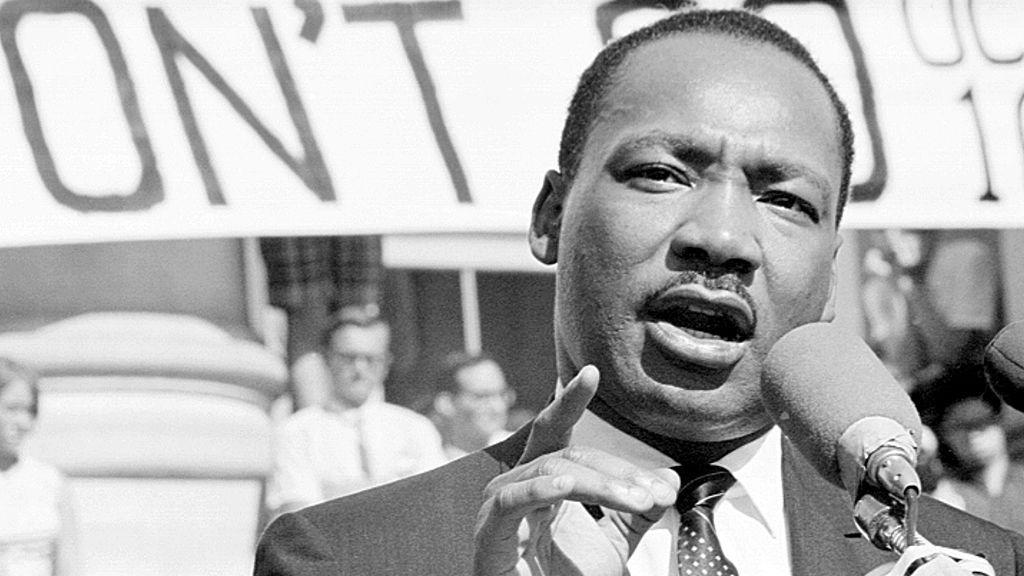
Dr. Martin Luther King Jr., minister, activist, and prominent leader in the civil rights movement, is remembered today for advancing civil rights through nonviolence. It has been more than 50 years since he was assassinated in 1968, but many Martin Luther King Jr. quotes and excerpts from his powerful speeches, sermons, and books remain just as relevant today (if not more so). He spoke wisely about equality, kindness, courage, change, forgiveness, and more — and his beliefs understandably still resonate with so many.
Martin Luther King Jr. Day, a federal holiday marking Dr. King's birthday, is observed on the third Monday of January each year. King's actual birthday was January 15, 1929. This year, MLK day is on Monday, January 15, 2024.
From 1955 until his assassination, the Nobel Peace Prize winner participated in, helped organize, and led marches and nonviolent protests, including the 1963 March on Washington, where he delivered his now-famous "I Have a Dream" speech on the steps of the Lincoln Memorial.
While many inspiring quotes are attributed to Dr. King, not all of them can be verified — and some are outright misattributed. To honor Dr. King's legacy and remember his contributions on Martin Luther King Jr. Day (and every day), we've compiled 37 of MLK's best quotes and included when he said them. Click the links to find more information on Dr. King, read full transcripts and hear recordings of his speeches, and learn more about the sentiments behind these important sayings.
"Hatred paralyzes life; love releases it. Hatred confuses life; love harmonizes it. Hatred darkens life; love illuminates it."
― A Testament of Hope: The Essential Writings and Speeches
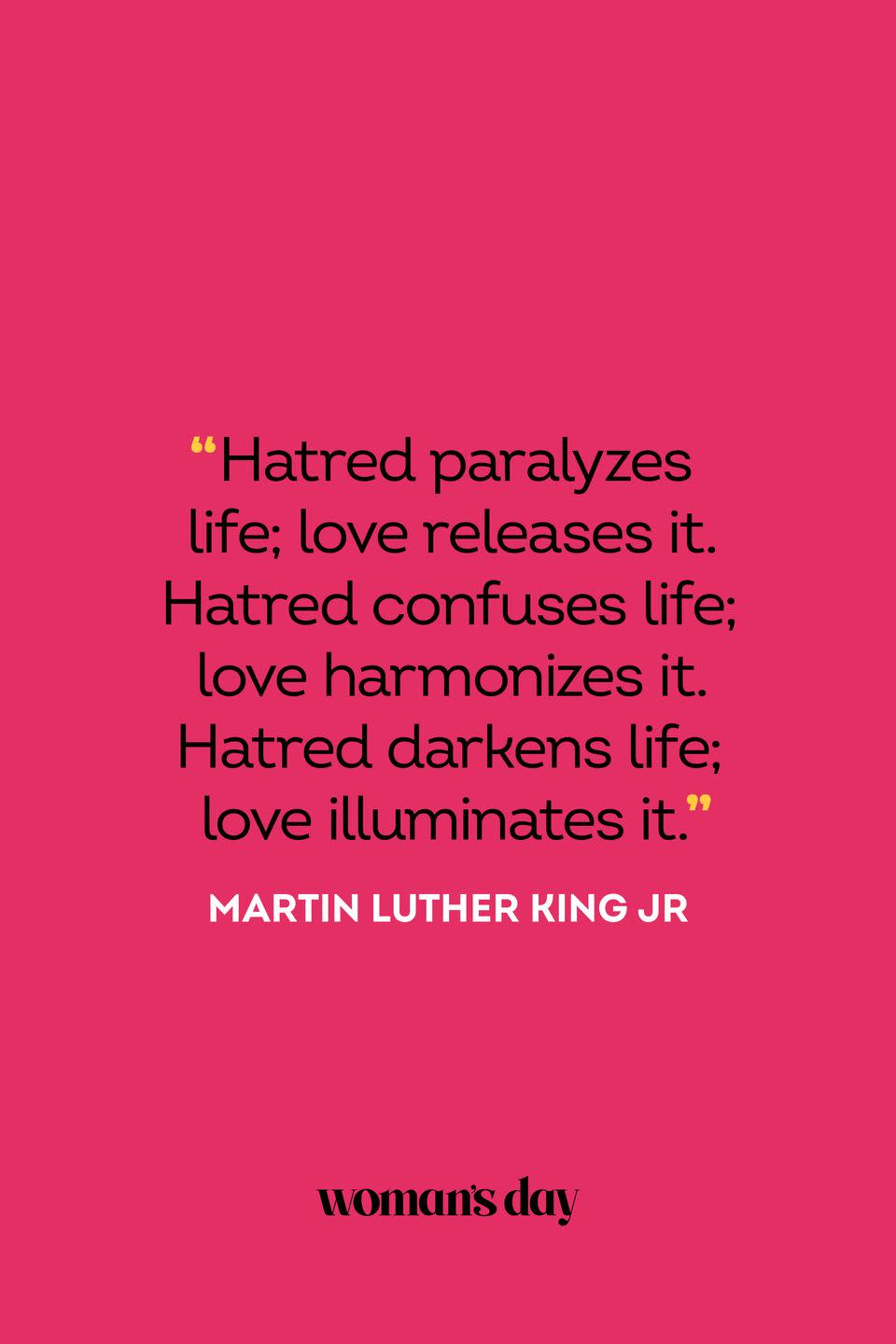
"Forgiveness is not an occasional act; it is a permanent attitude."
— "Love in Action"sermon
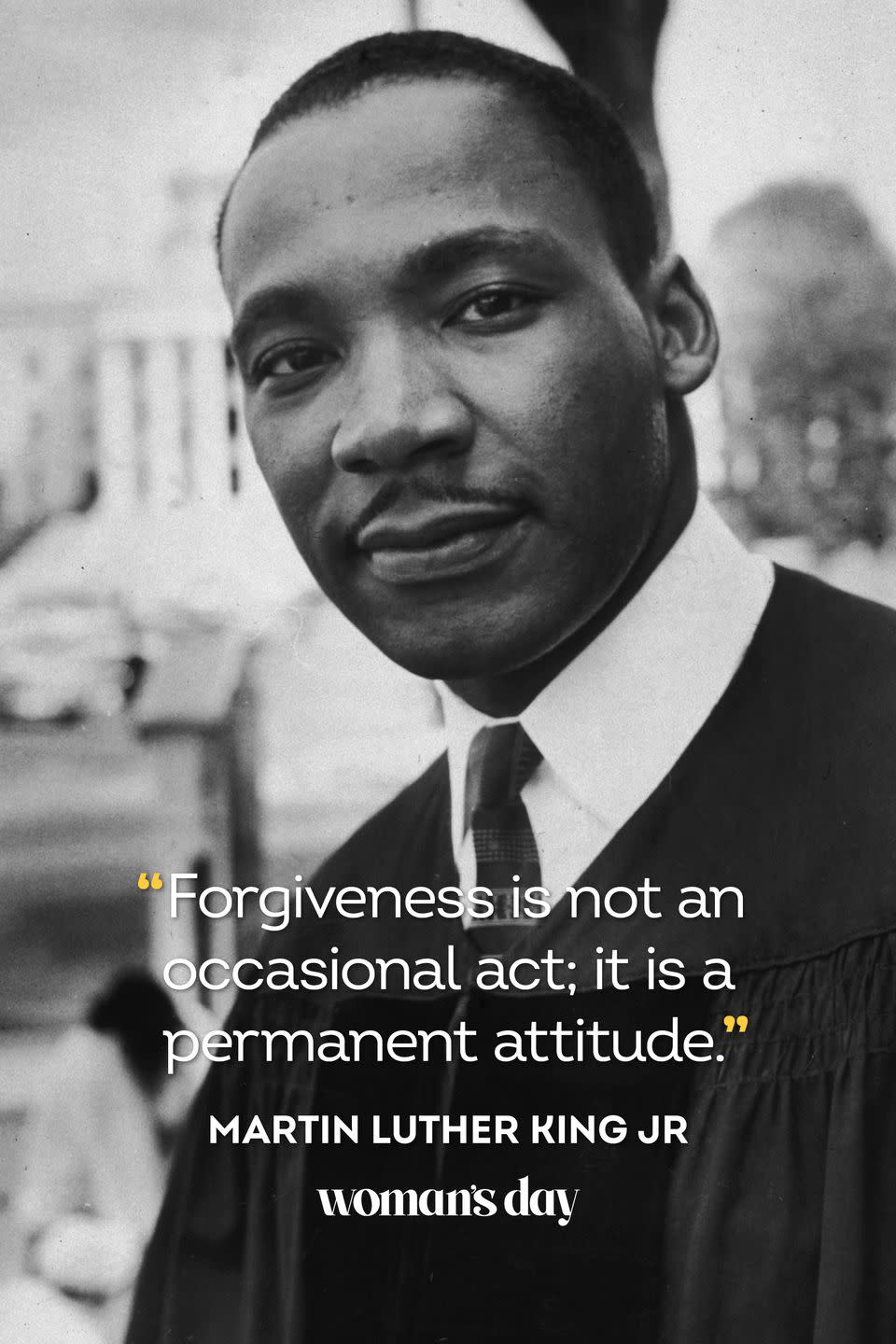
"Love is the greatest force in the universe. It is the heartbeat of the moral cosmos. He who loves is a participant in the being of God."
— Handwritten note, mid-1960s
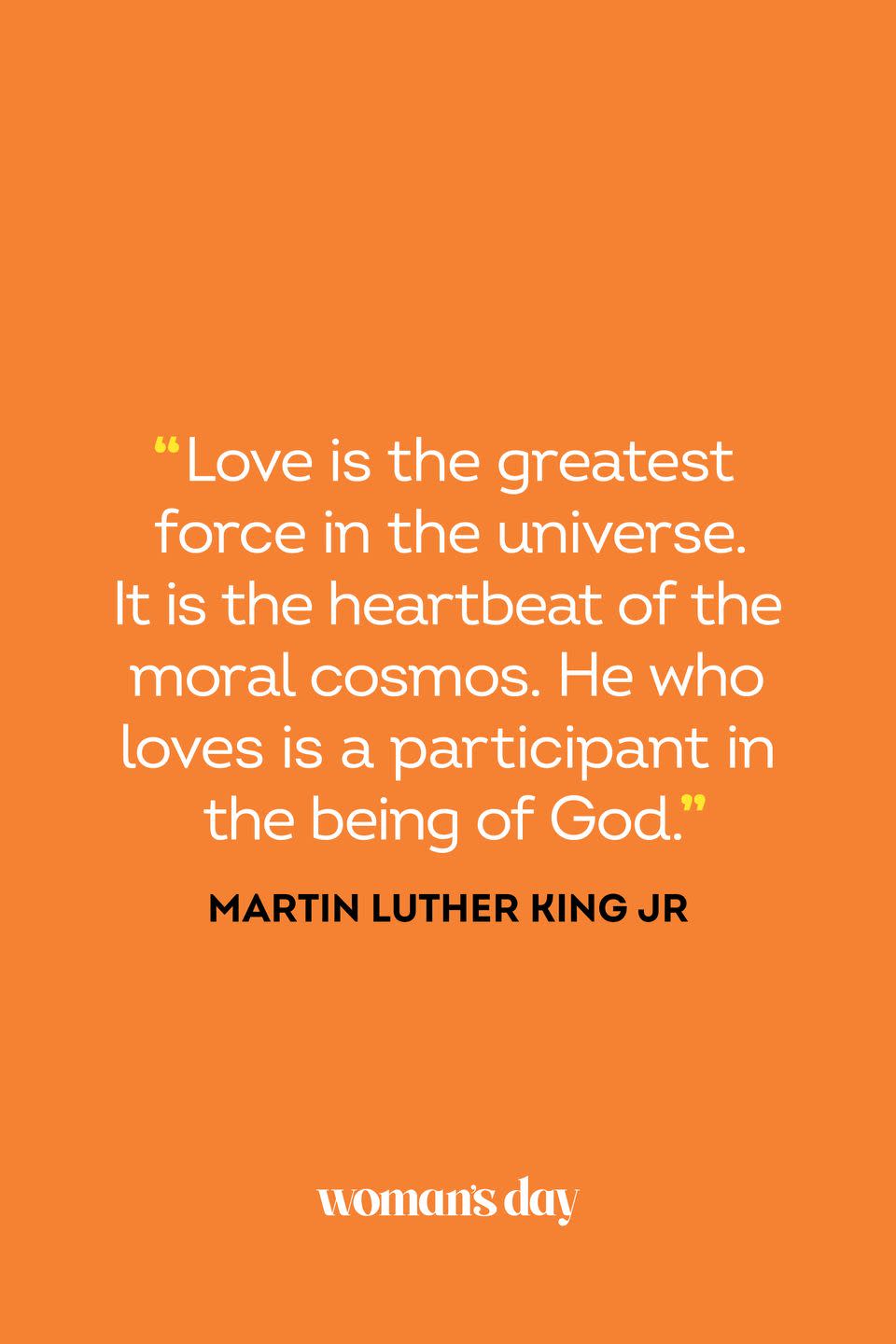
"Intelligence plus character—that is the goal of true education."
— "The Purpose of Education," Morehouse College campus newspaper, 1947
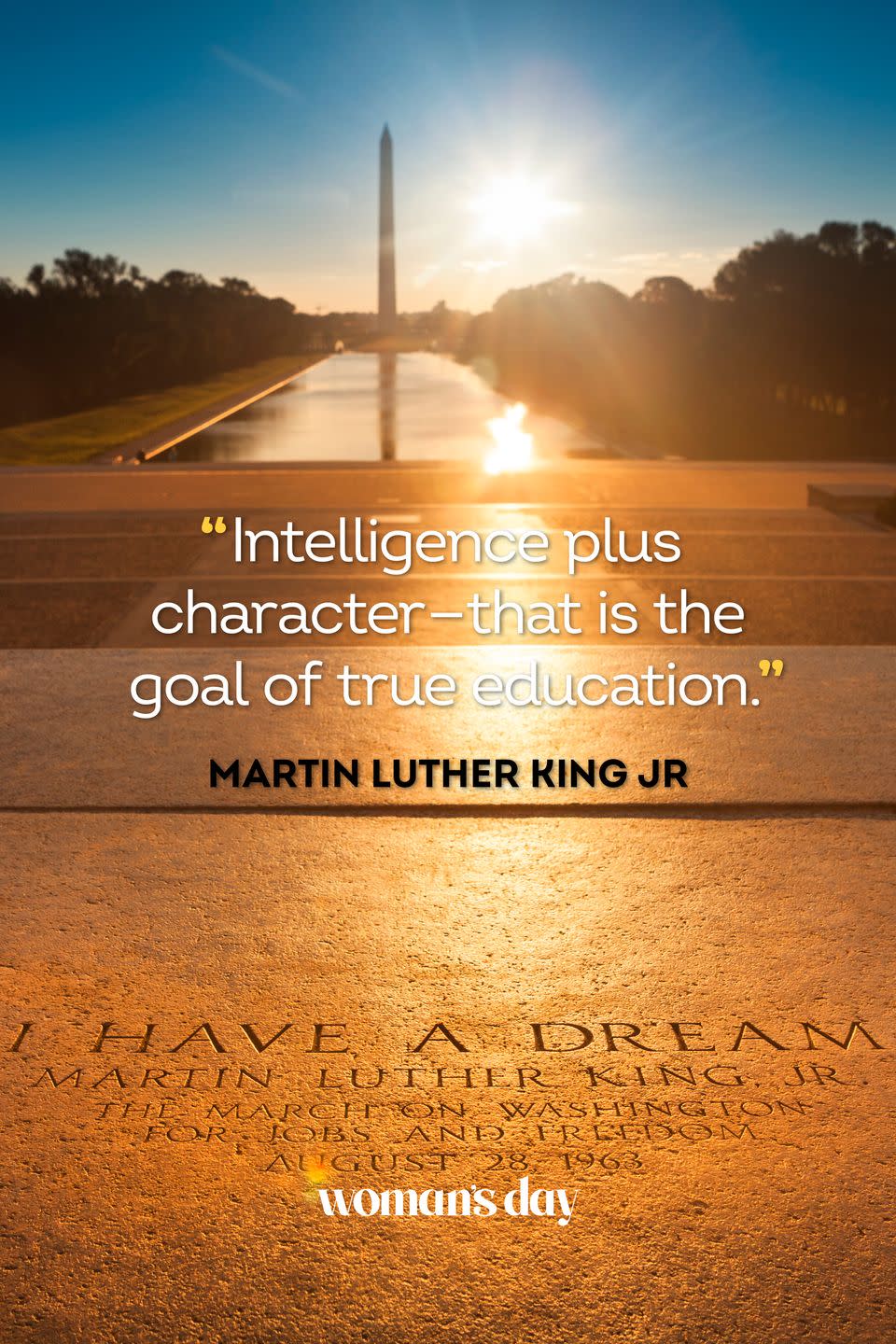
"Change does not roll in on the wheels of inevitability, but comes through continuous struggle."
— "The Death of Evil upon the Seashore"sermon at the Cathedral of St. John the Divine, New York City, May 17, 1956
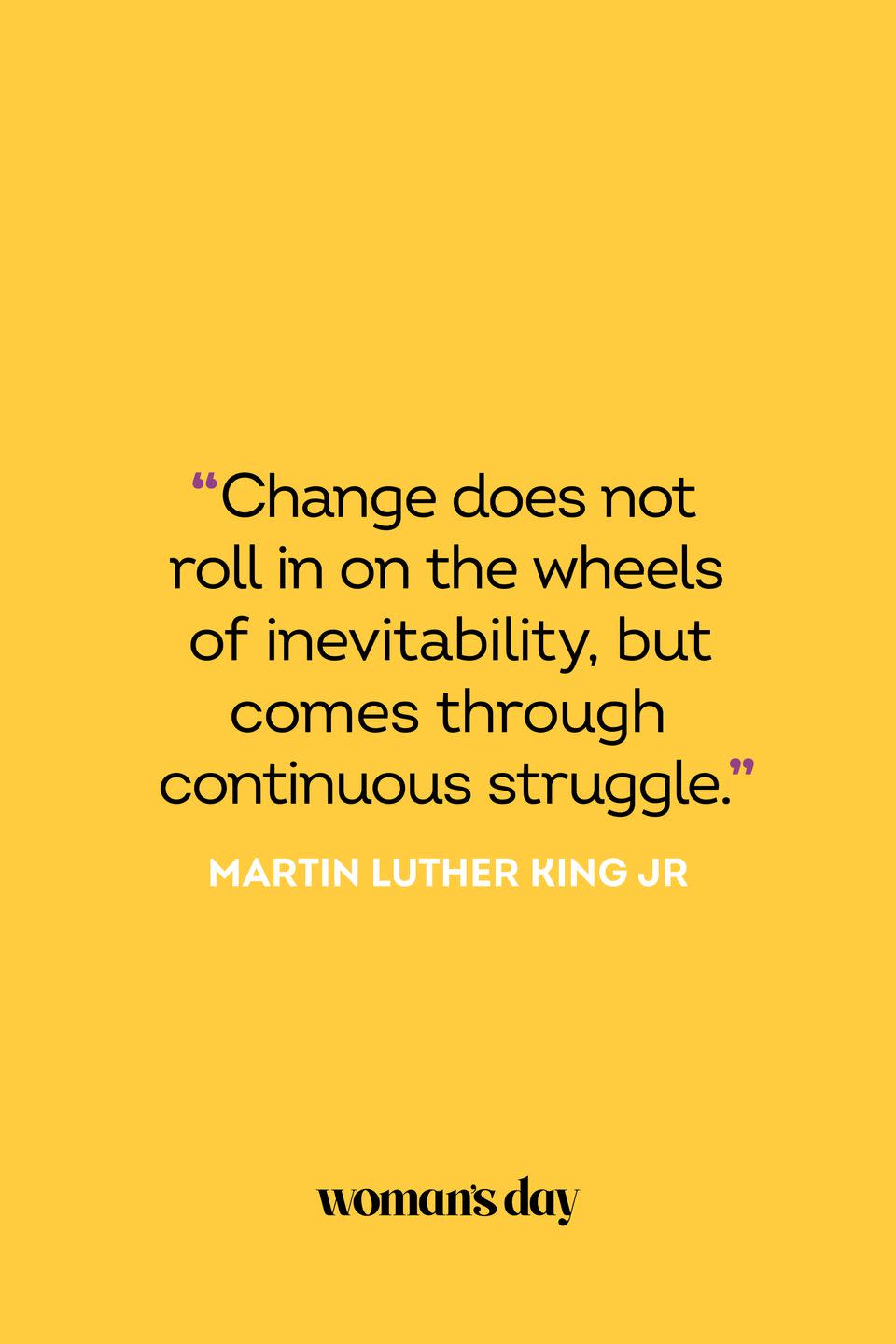
"Let no man pull you so low as to hate him."
— Sermon at Dexter Avenue Baptist Church, November 6, 1956
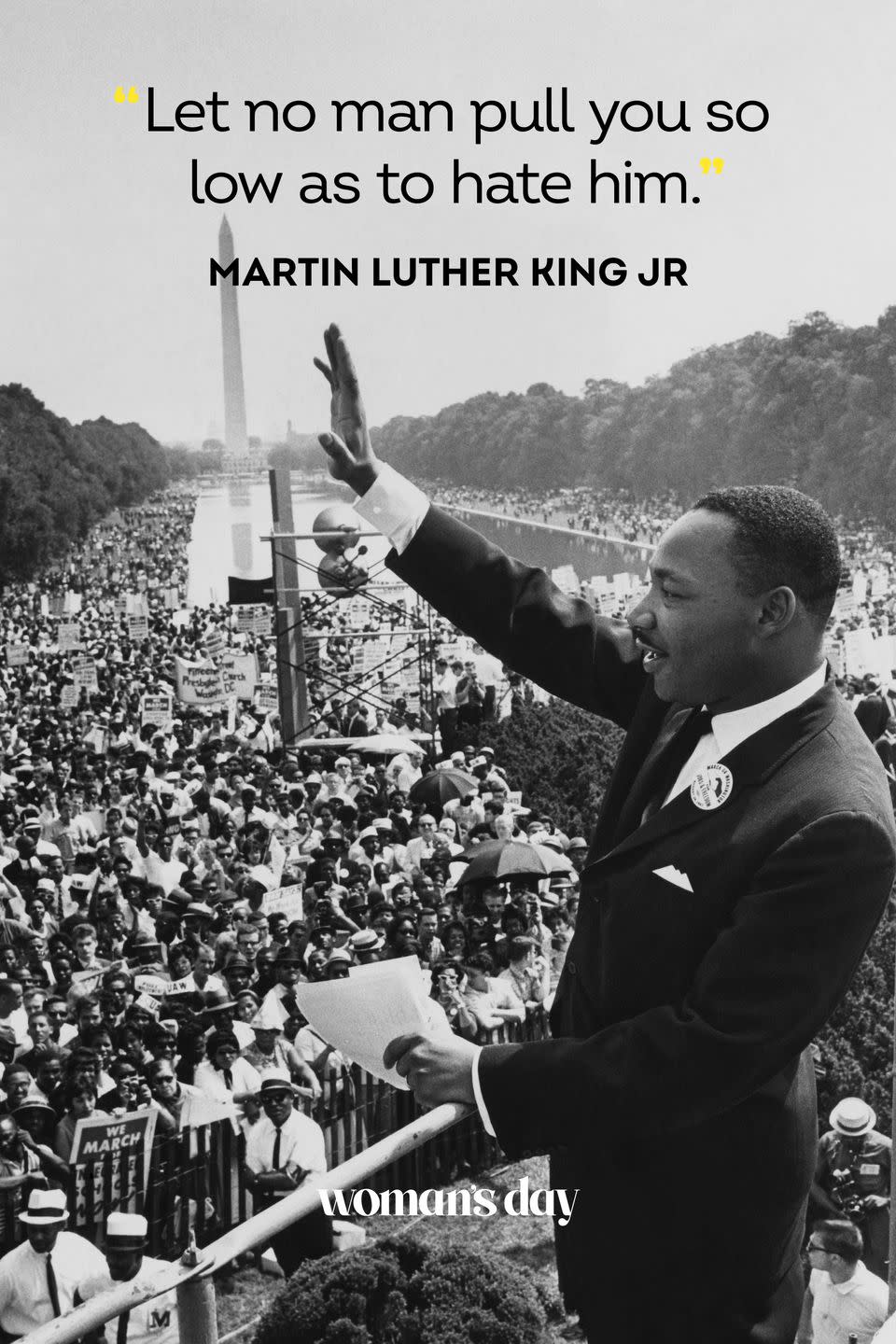
"True peace is not merely the absence of tension; it is the presence of justice."
— Stride Toward Freedom, 1958
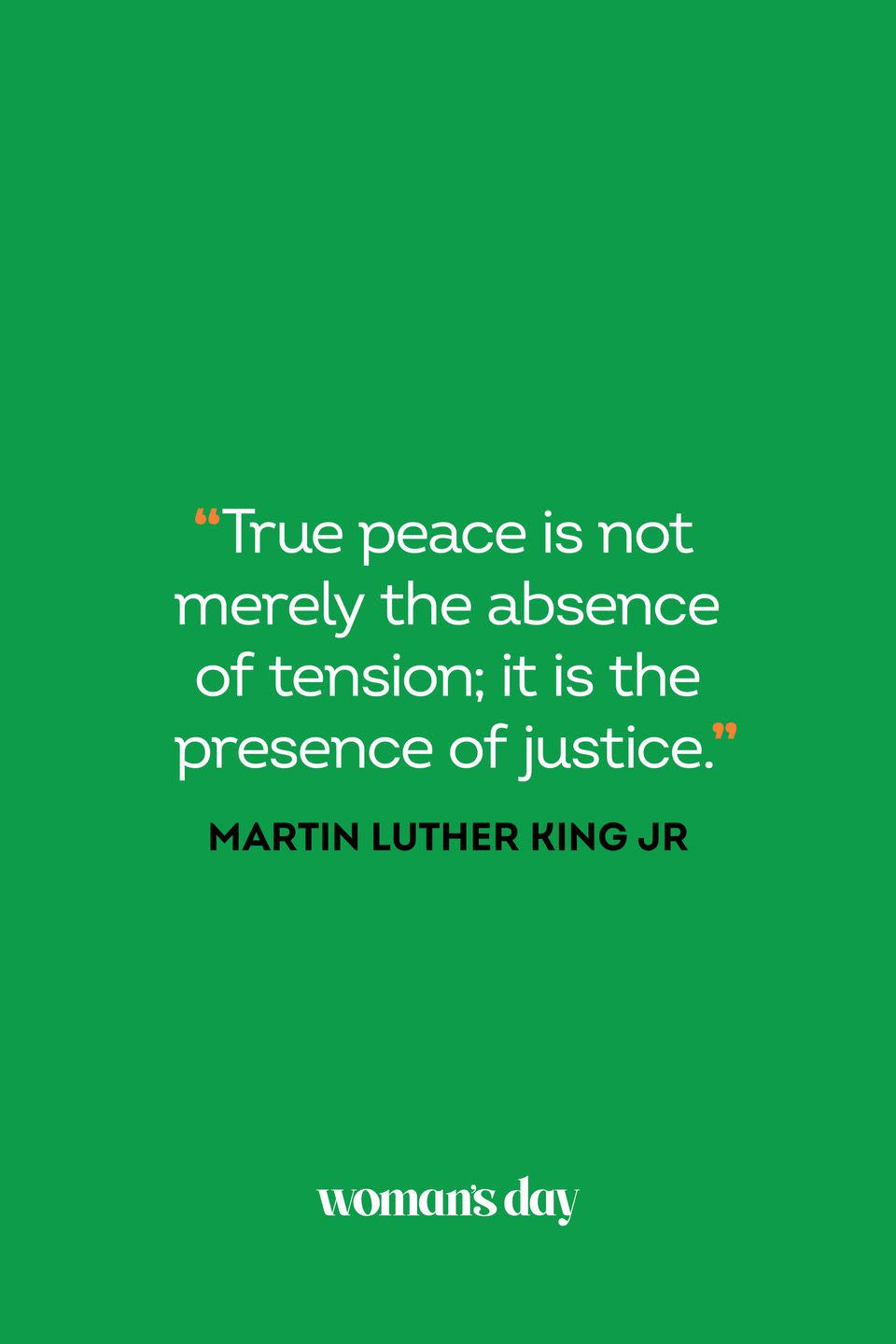
"Make a career of humanity. Commit yourself to the noble struggle for equal rights. You will make a better person of yourself, a greater nation of your country, and a finer world to live in."
— March for Integrated Schools, April 18, 1959
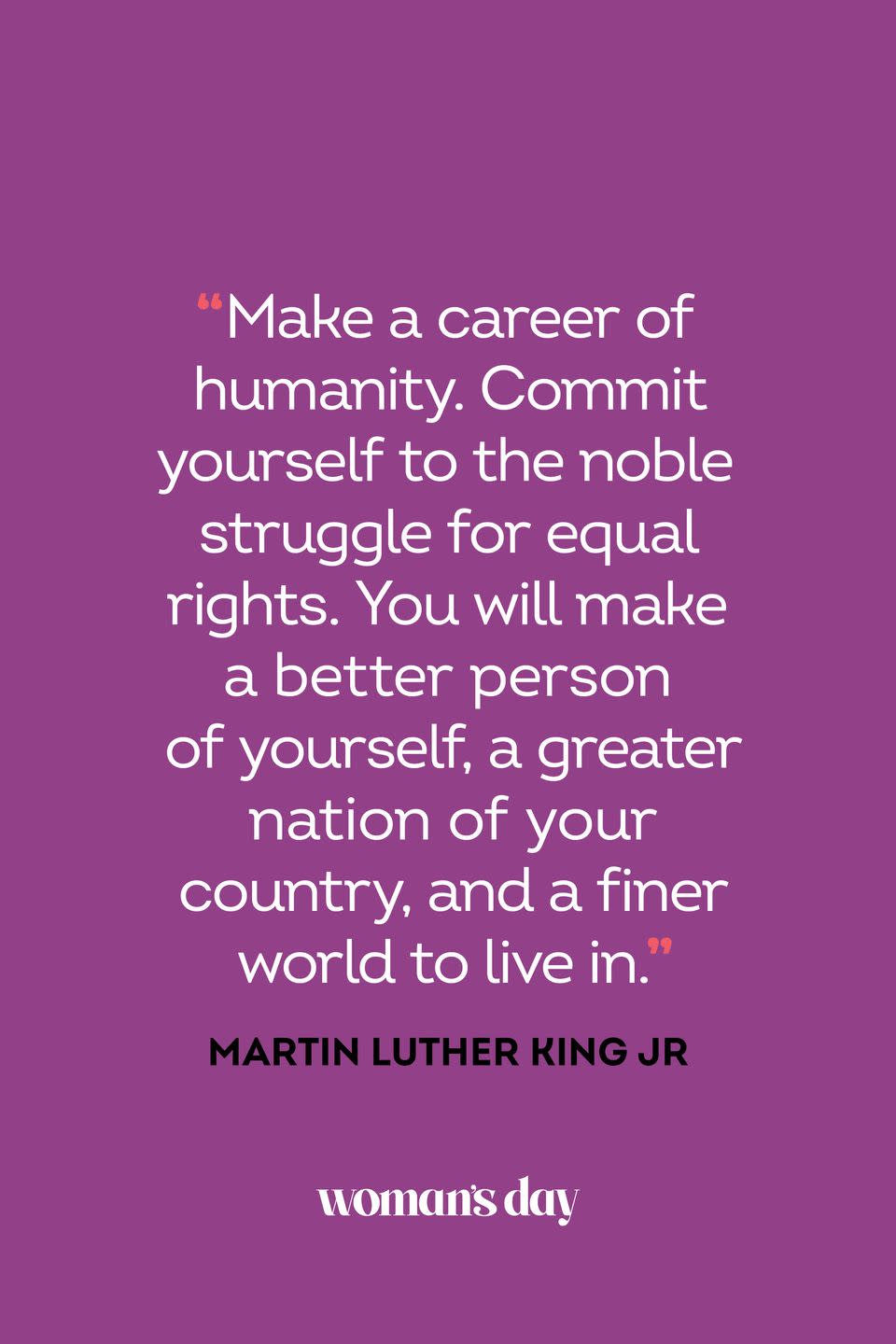
"Life's most persistent and urgent question is, 'What are you doing for others?'"
— "The Three Dimensions of a Complete Life"sermon at Friendship Baptist Church in Pasadena, CA, February 28, 1960
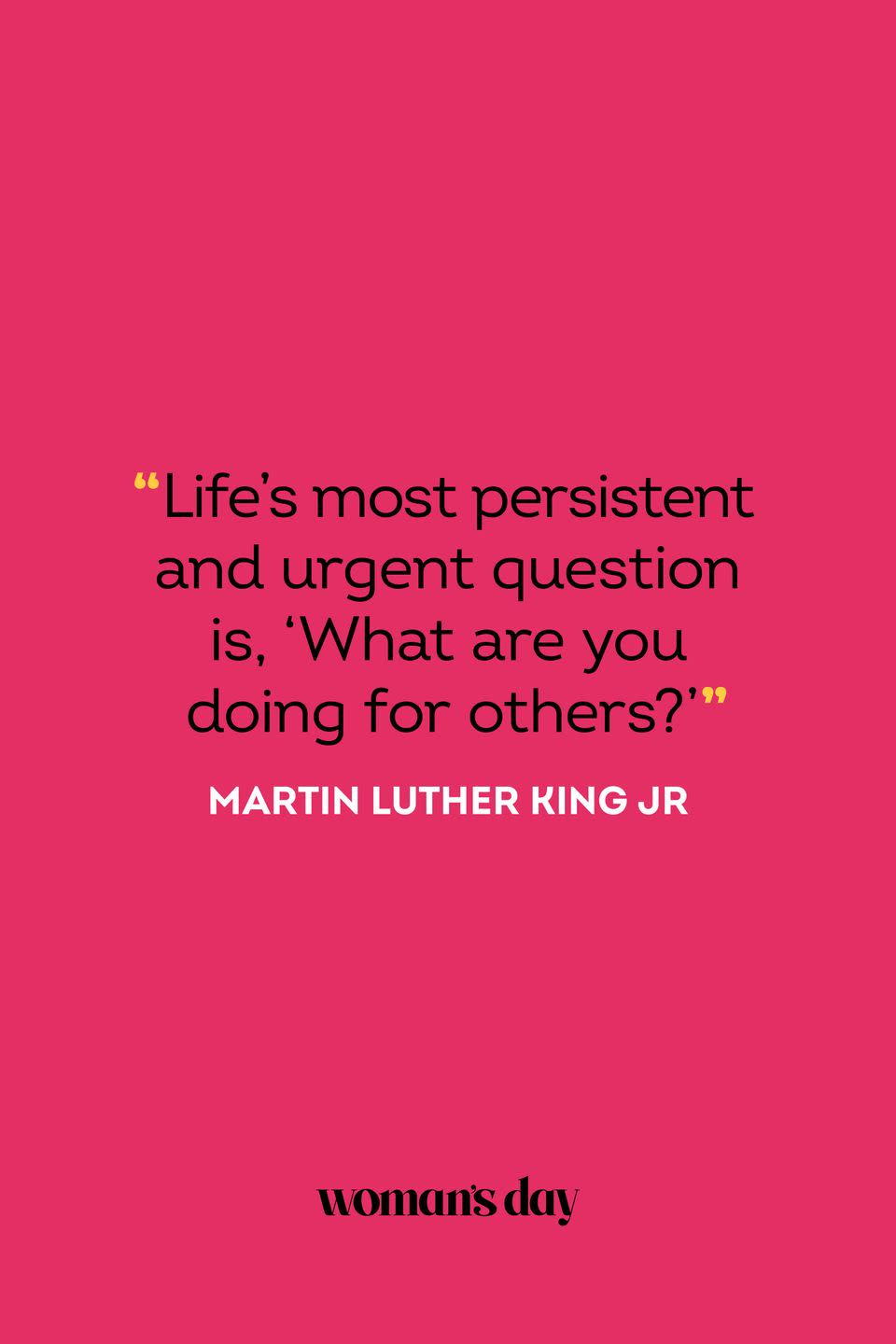
"If you can't fly then run, if you can't run then walk, if you can't walk then crawl, but whatever you do you have to keep moving forward."
— Address at Spelman College, April 10, 1960

"The ultimate measure of a man is not where he stands in moments of comfort and convenience, but where he stands at times of challenge and controversy."
— Strength to Love, 1963
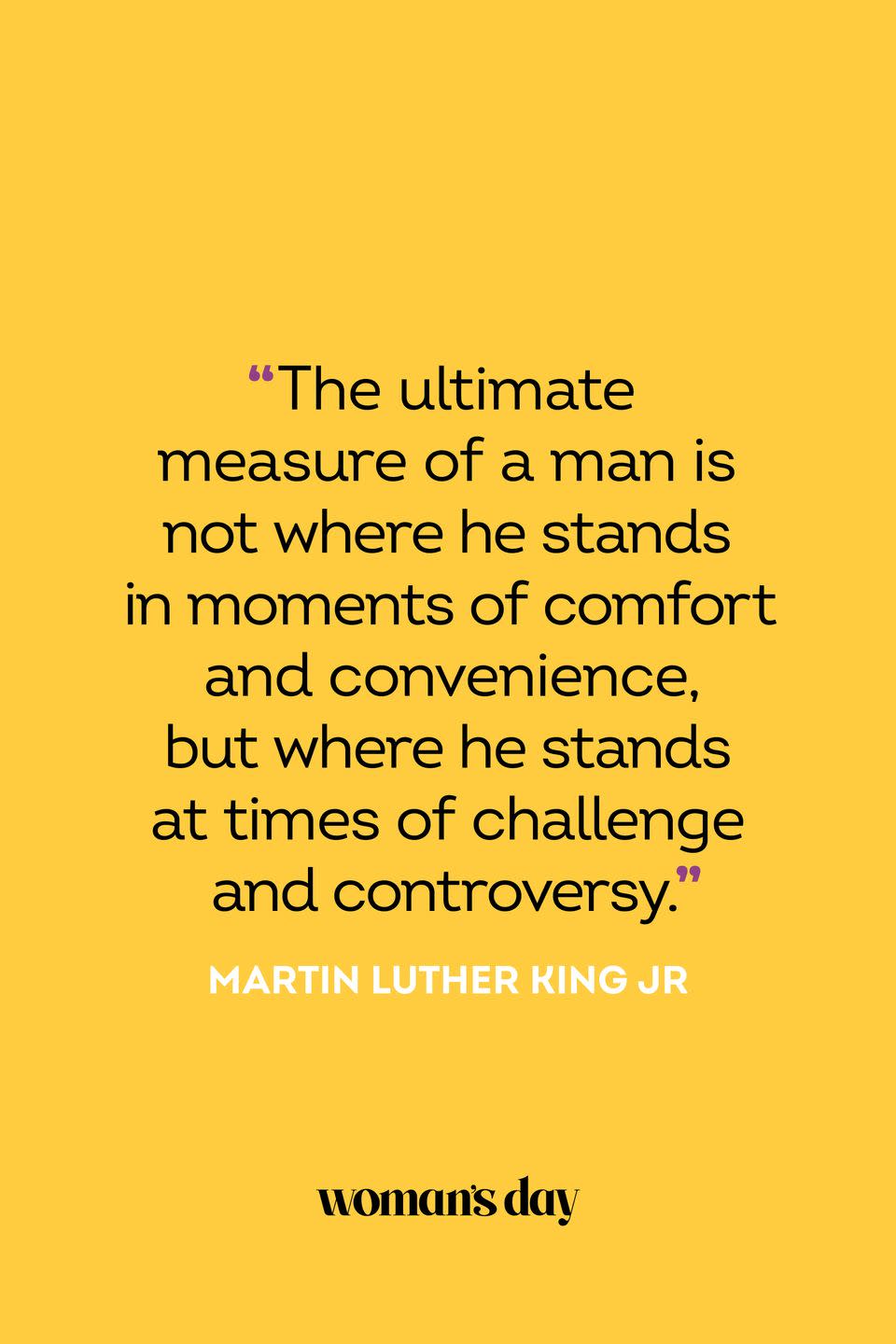
"Darkness cannot drive out darkness; only light can do that. Hate cannot drive out hate, only love can do that."
— Strength to Love, 1963
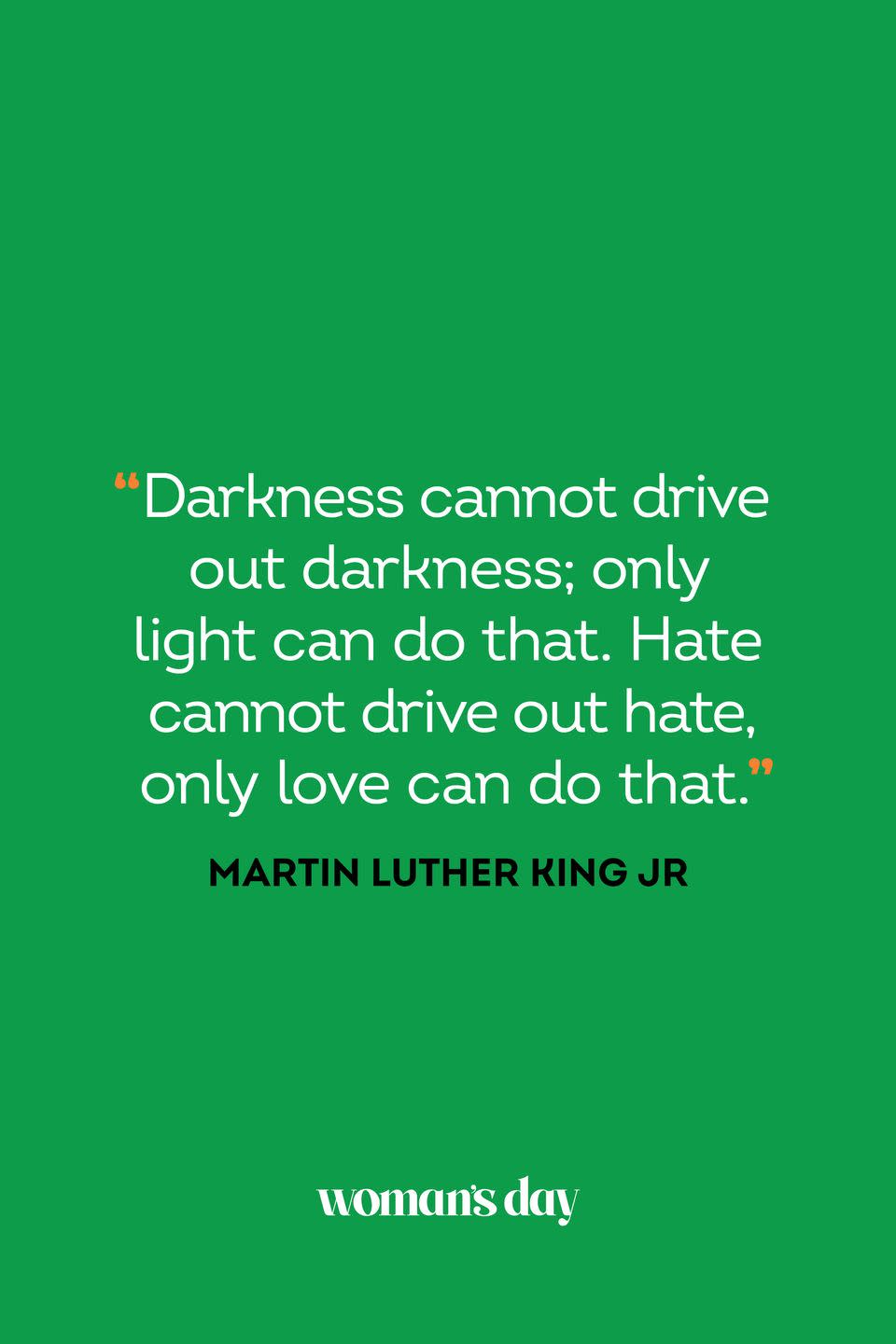
"One day we will learn that the heart can never be totally right when the head is totally wrong."
— Strength to Love, 1963
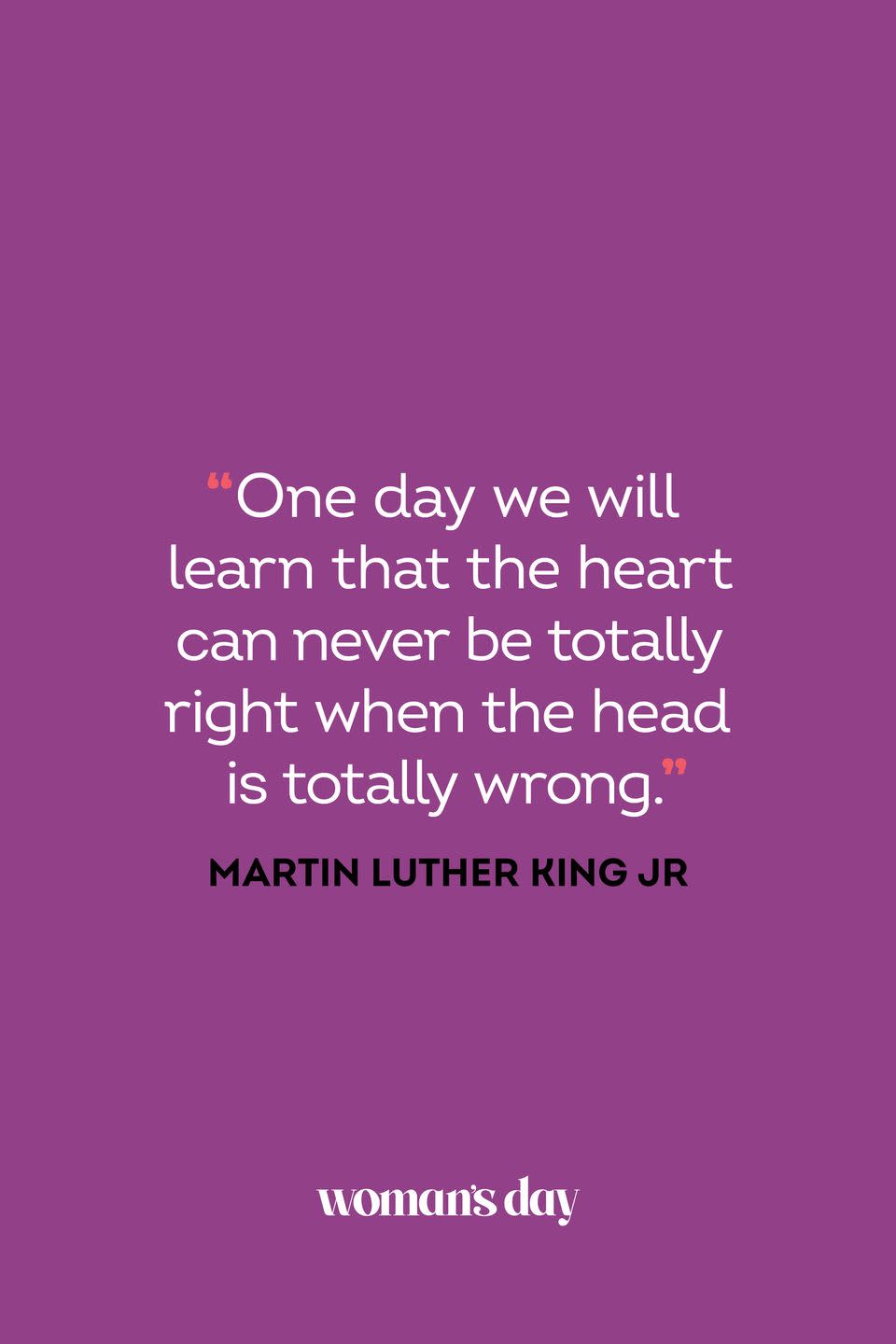
"Nothing in all the world is more dangerous than sincere ignorance and conscientious stupidity."
— Strength to Love, 1963
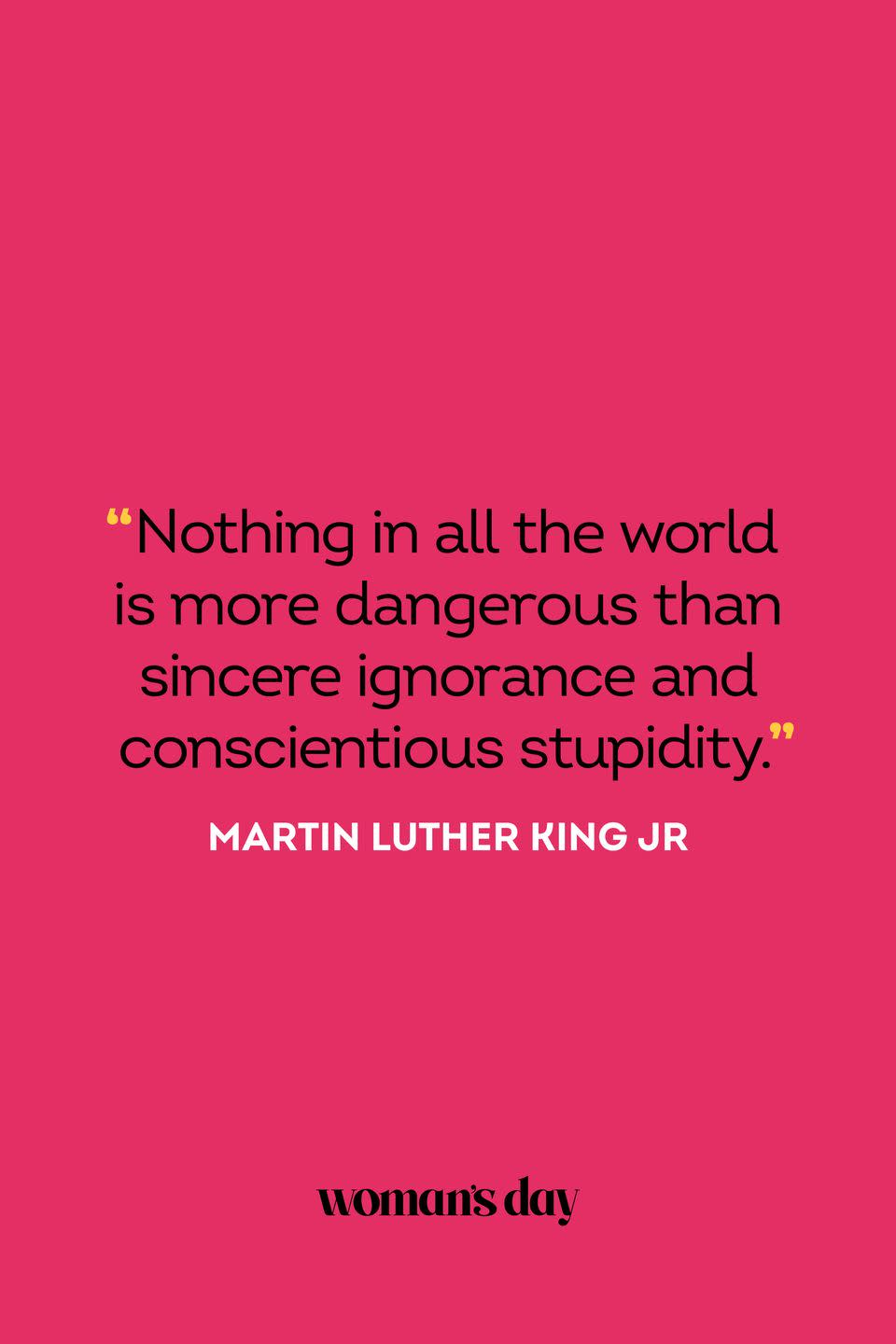
"Injustice anywhere is a threat to justice everywhere. We are caught in an inescapable network of mutuality, tied in a single garment of destiny. Whatever affects one directly, affects all indirectly."
— Letter from Birmingham Jail, April 16, 1963
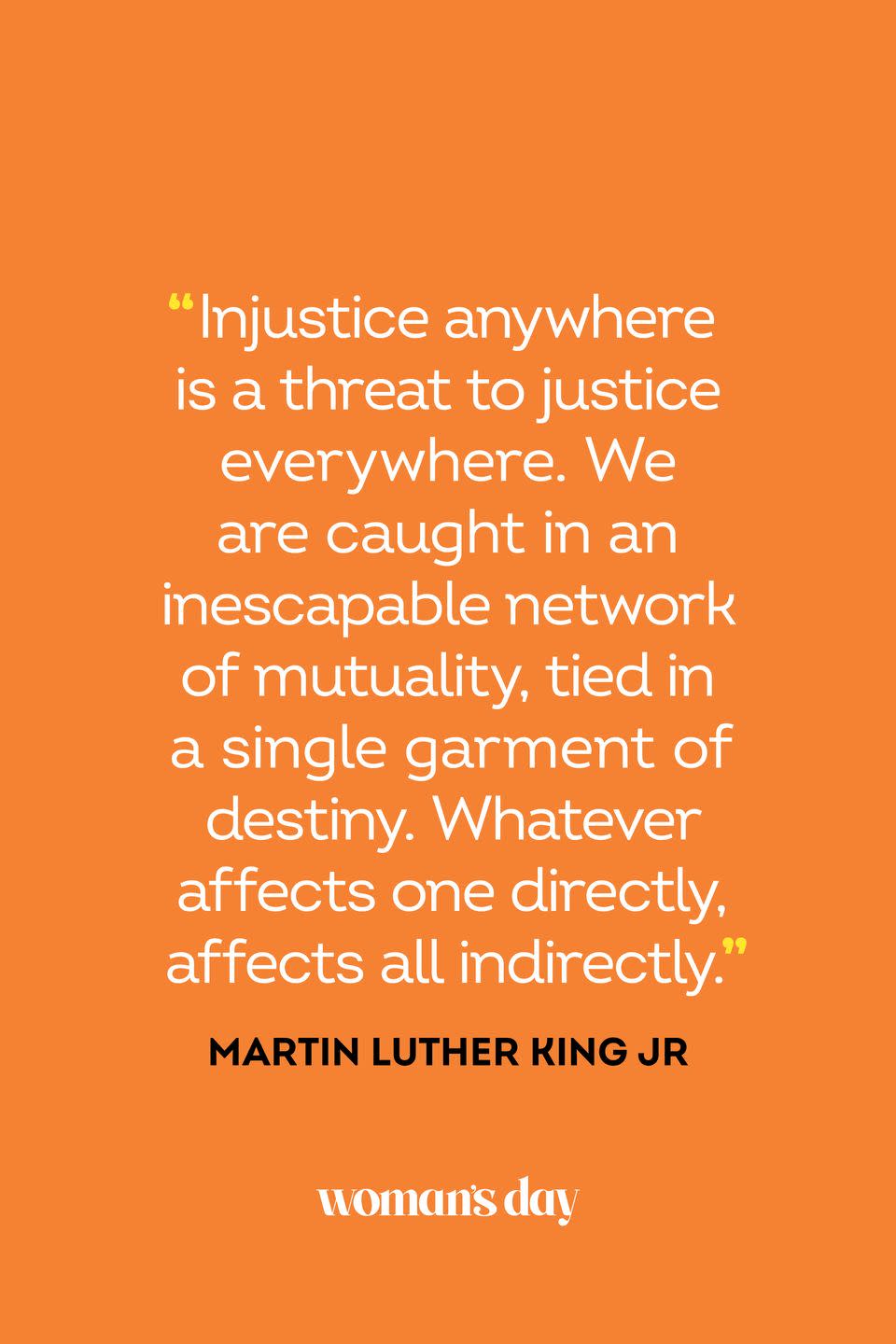
"We must use time creatively, in the knowledge that the time is always ripe to do right."
— Letter from Birmingham Jail, April 16, 1963
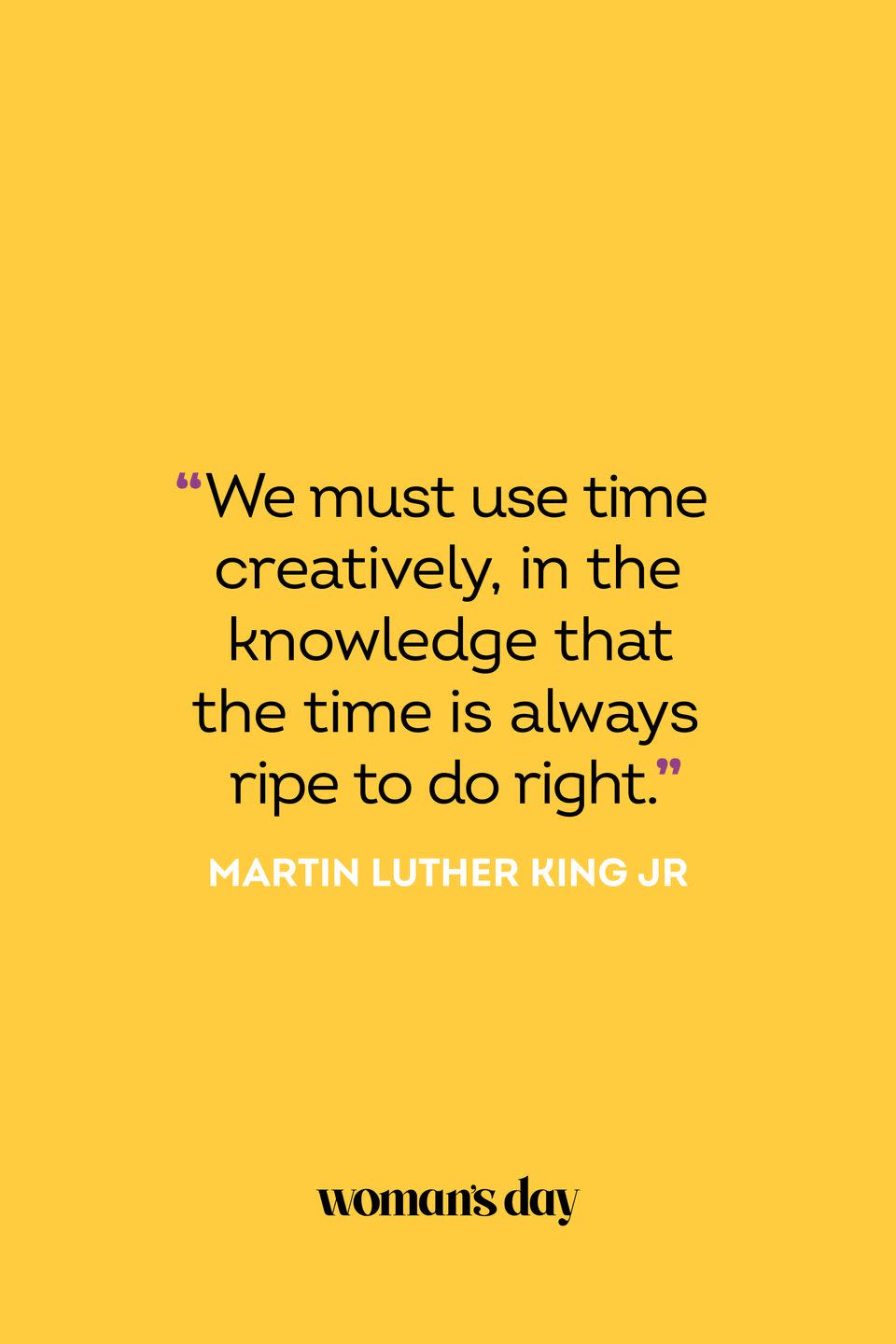
"So even though we face the difficulties of today and tomorrow, I still have a dream. It is a dream deeply rooted in the American dream. I have a dream that one day this nation will rise up and live out the true meaning of its creed: We hold these truths to be self-evident, that all men are created equal."
— "I Have A Dream" speech at the Lincoln Memorial in Washington, D.C., August 28, 1963
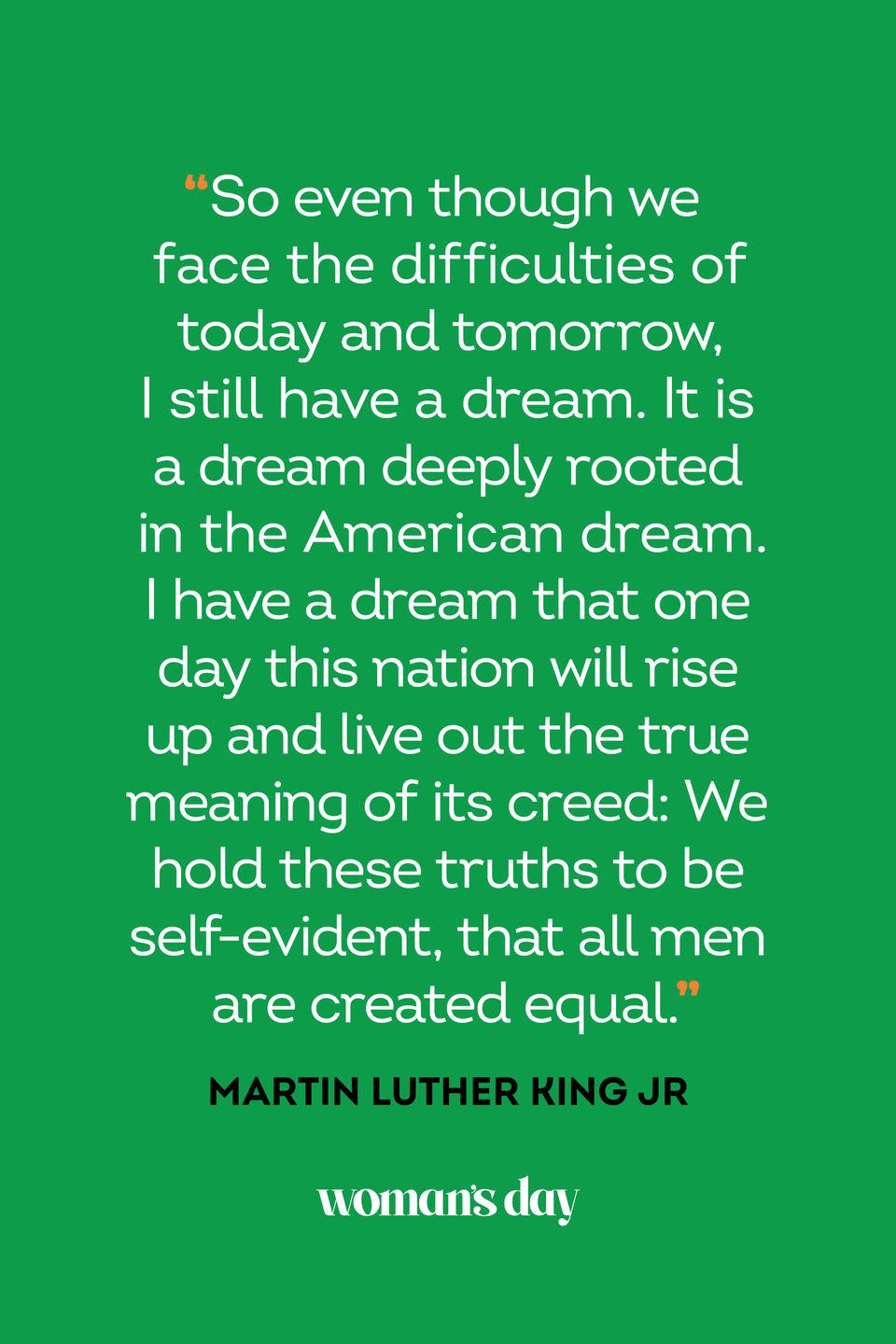
"I have a dream that my four little children will one day live in a nation where they will not be judged by the color of their skin, but by the content of their character."
— "I Have A Dream" speech, August 28, 1963

"We will be able to hew out of the mountain of despair a stone of hope."
— "I Have A Dream" speech, August 28, 1963

"Let us not seek to satisfy our thirst for freedom by drinking from the cup of bitterness and hatred."
— "I Have A Dream" speech, August 28, 1963
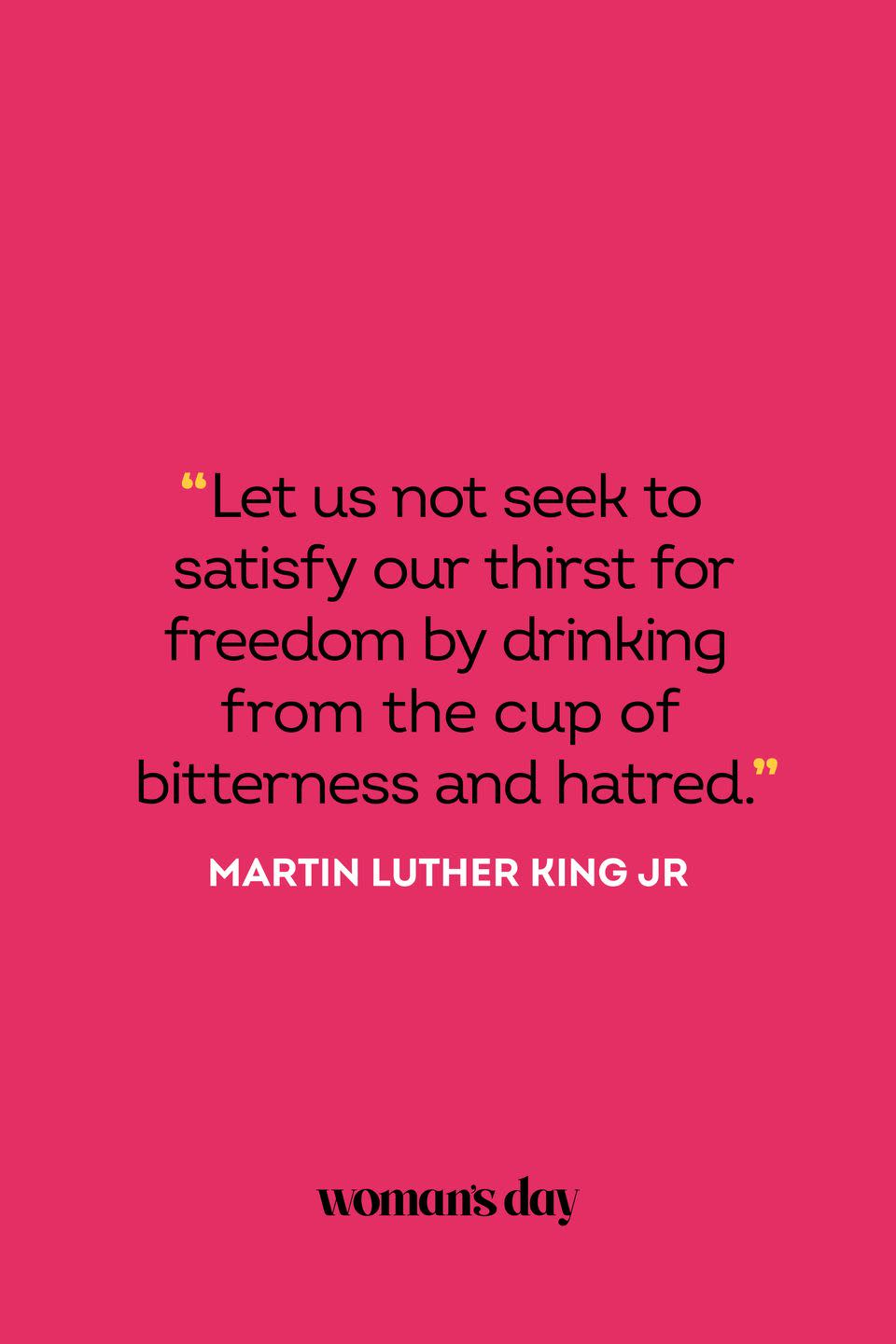
"We must learn to live together as brothers or perish together as fools."
— Speech in St. Louis, March 22, 1964
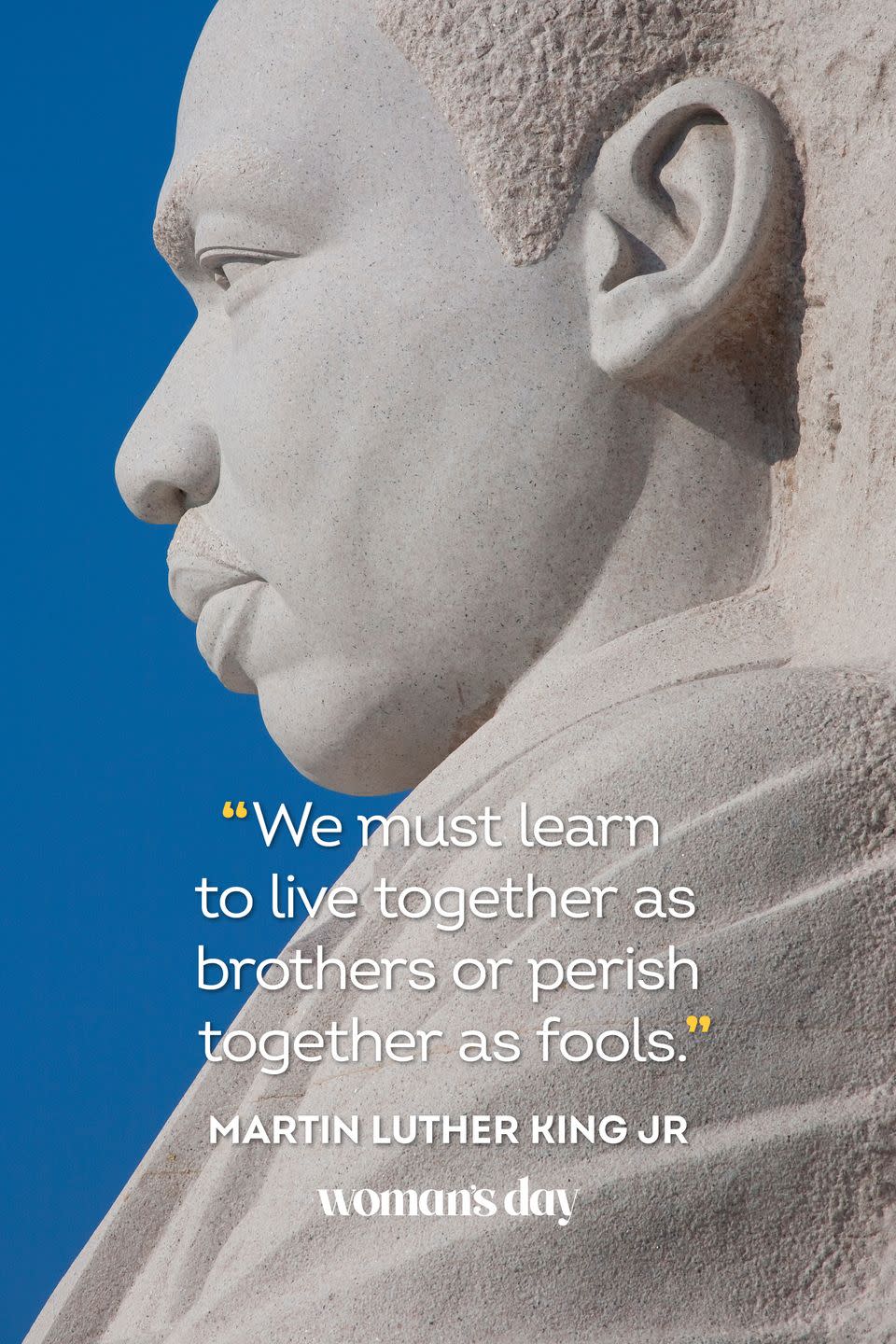
"Man must evolve for all human conflict a method which rejects revenge, aggression and retaliation. The foundation of such a method is love."
— Nobel Peace Prize acceptance speech, Oslo, Norway, 1964
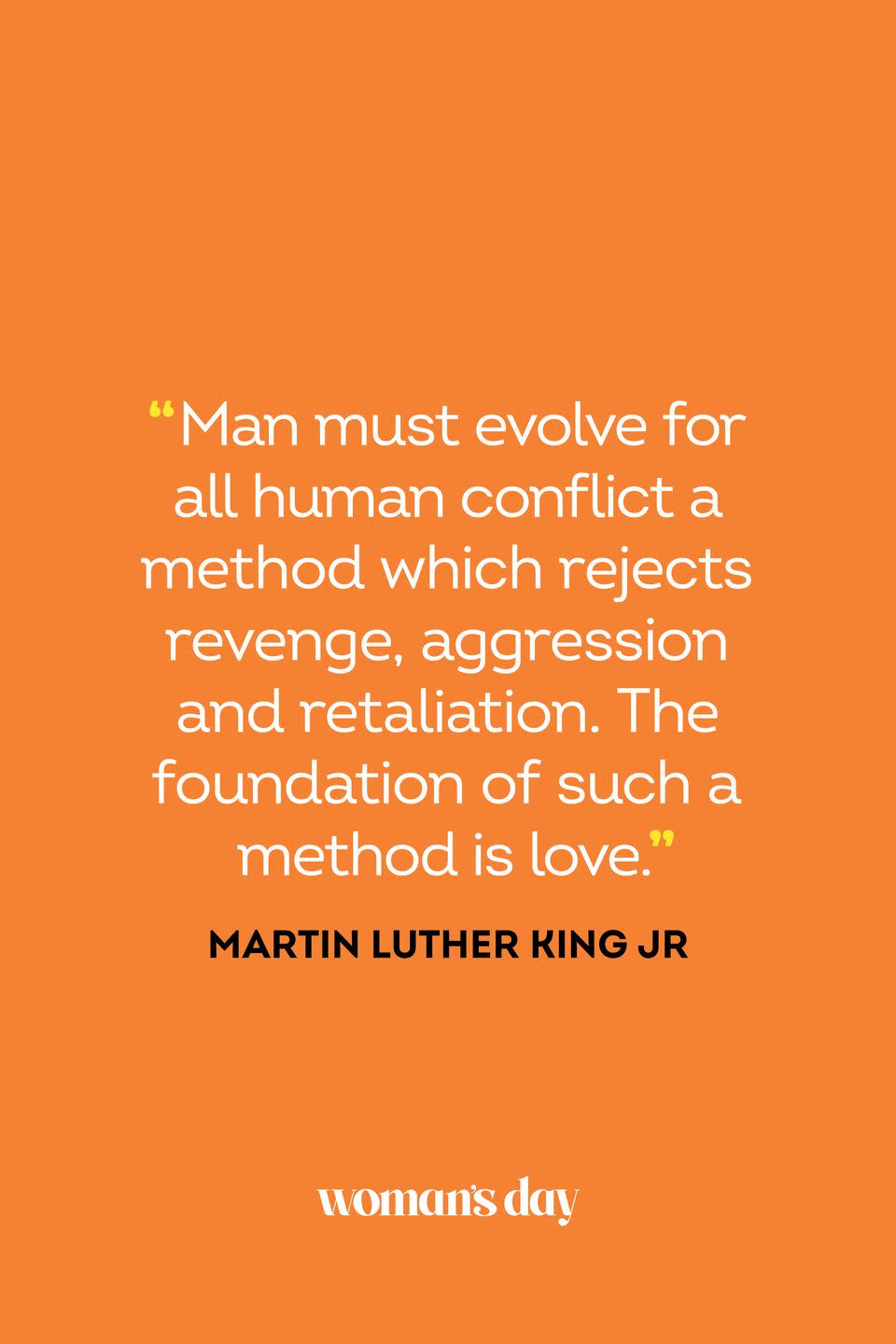
"I believe that unarmed truth and unconditional love will have the final word in reality. This is why right, temporarily defeated, is stronger than evil triumphant."
— Nobel Peace Prize acceptance speech, Oslo, Norway, 1964
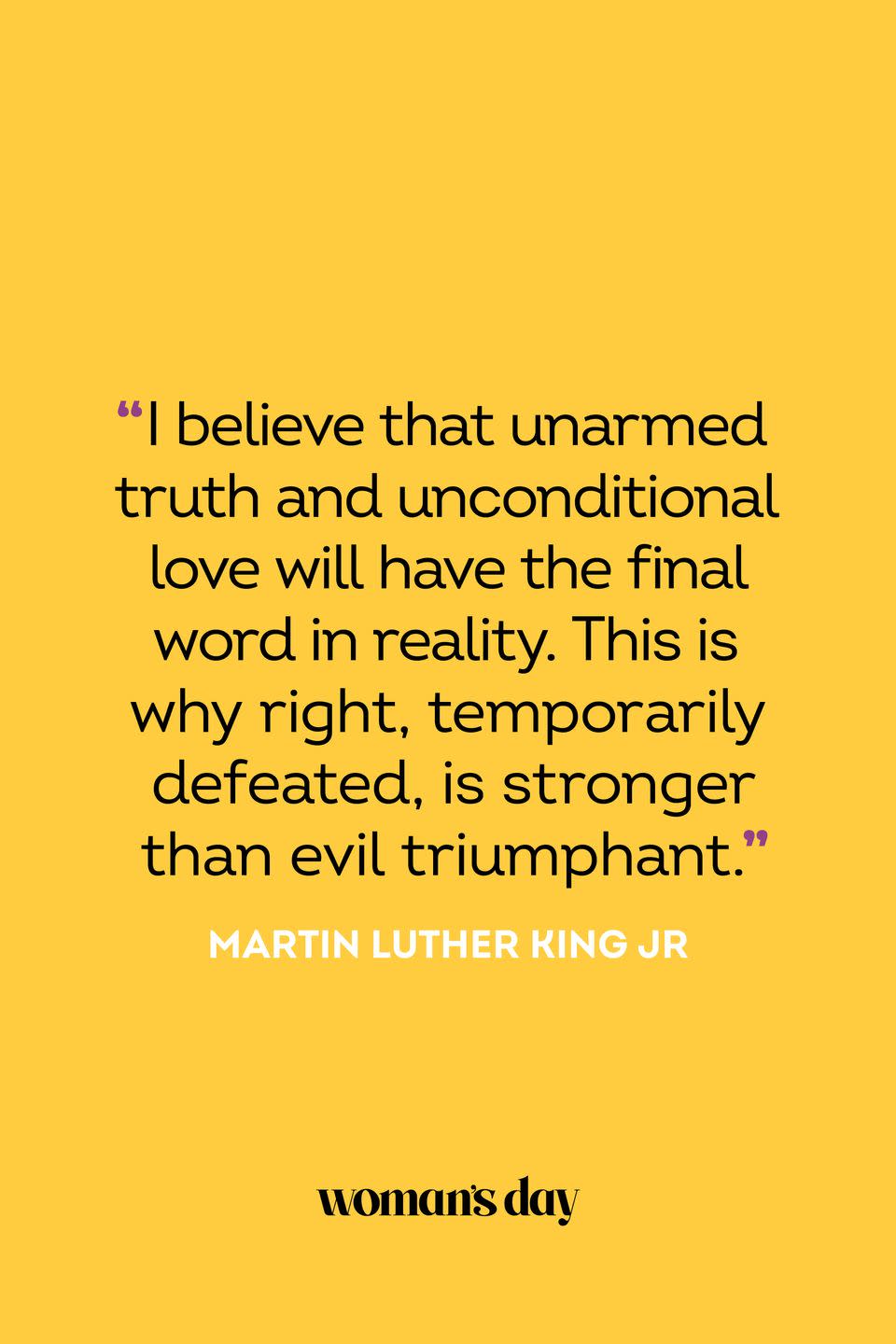
"The beauty of genuine brotherhood and peace is more precious than diamonds or silver or gold."
— Nobel Peace Prize acceptance speech, 1964
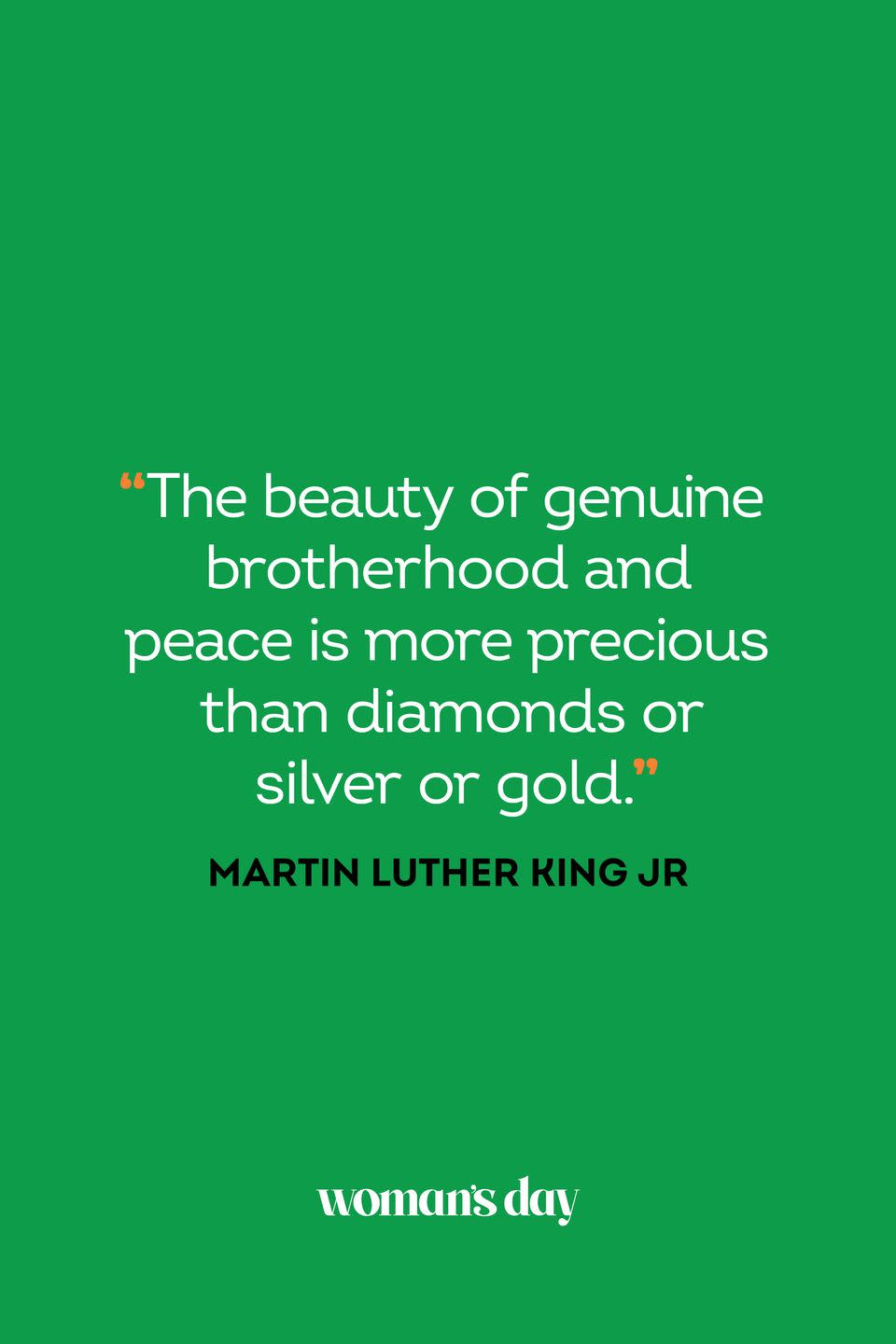
"The time is always right to do what is right."
— Speech at Oberlin College, October 22, 1964
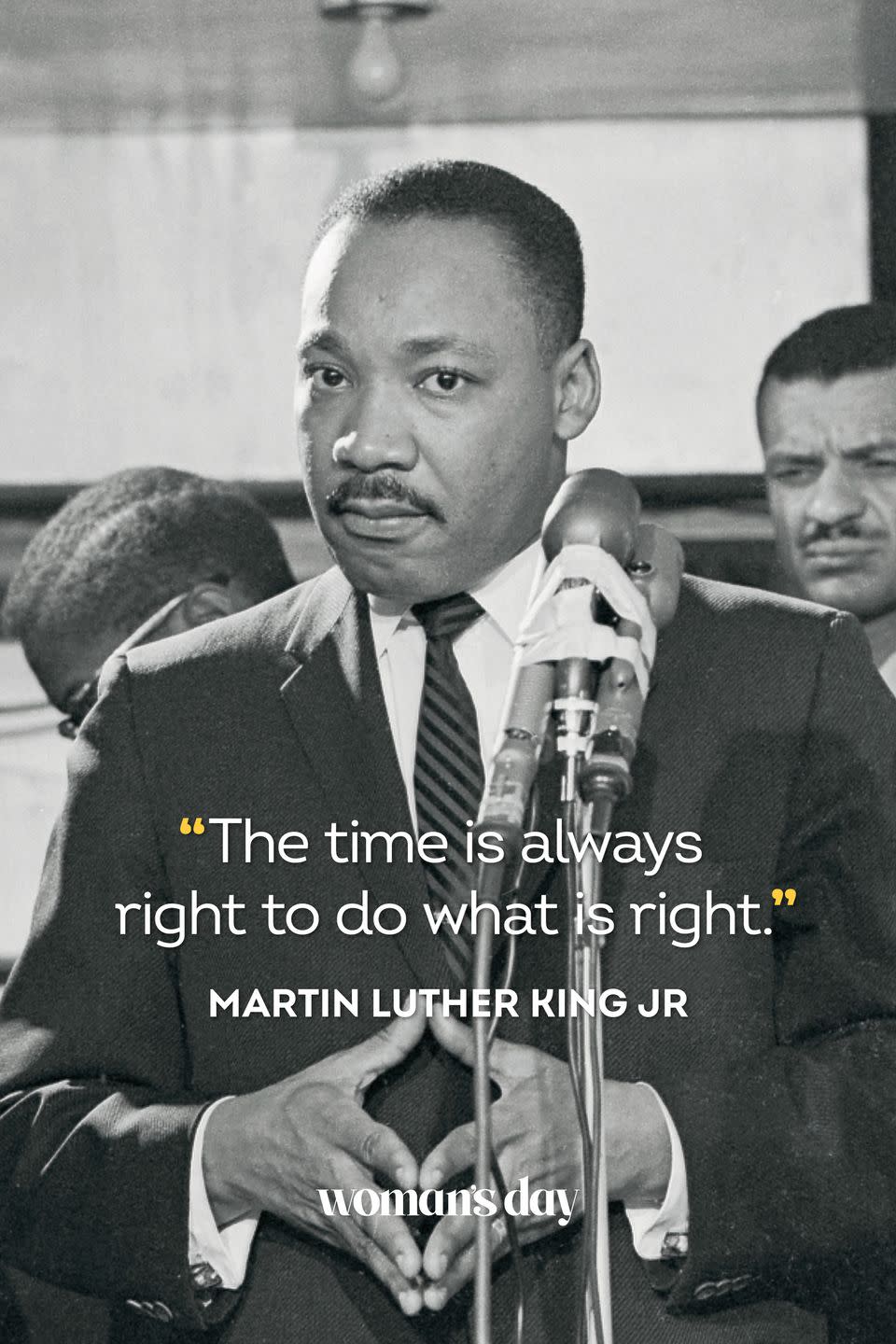
"Violence is immoral because it thrives on hatred rather than love. It destroys community and makes brotherhood impossible. It leaves society in monologue rather than dialogue. Violence ends up defeating itself. It creates bitterness in the survivors and brutality in the destroyers.
— "The Quest for Peace and Justice" Nobel Lecture, December 11, 1964
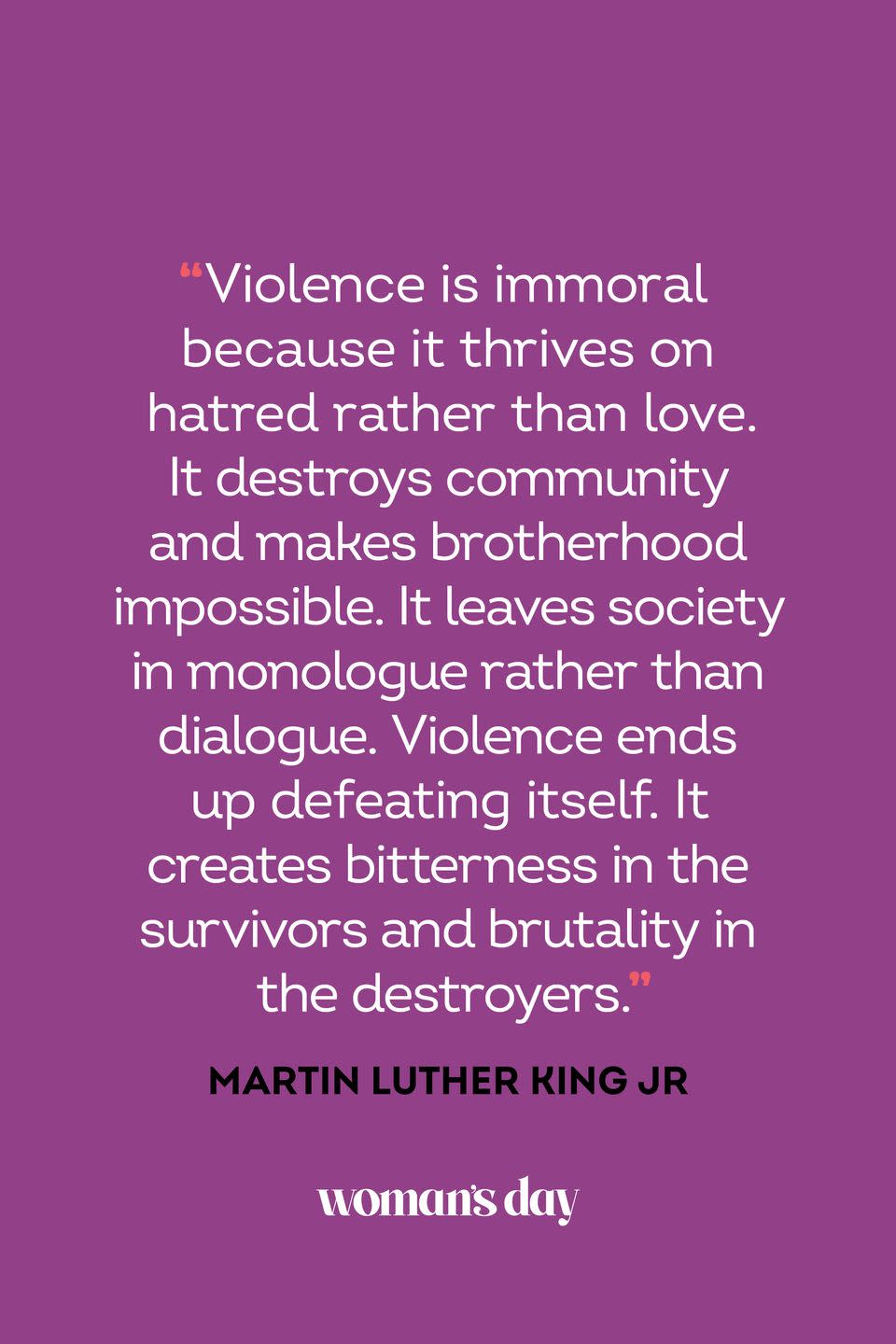
"Nonviolence is a powerful and just weapon. Indeed, it is a weapon unique in history, which cuts without wounding and ennobles the man who wields it."
— "The Quest for Peace and Justice" Nobel Lecture, December 11, 1964
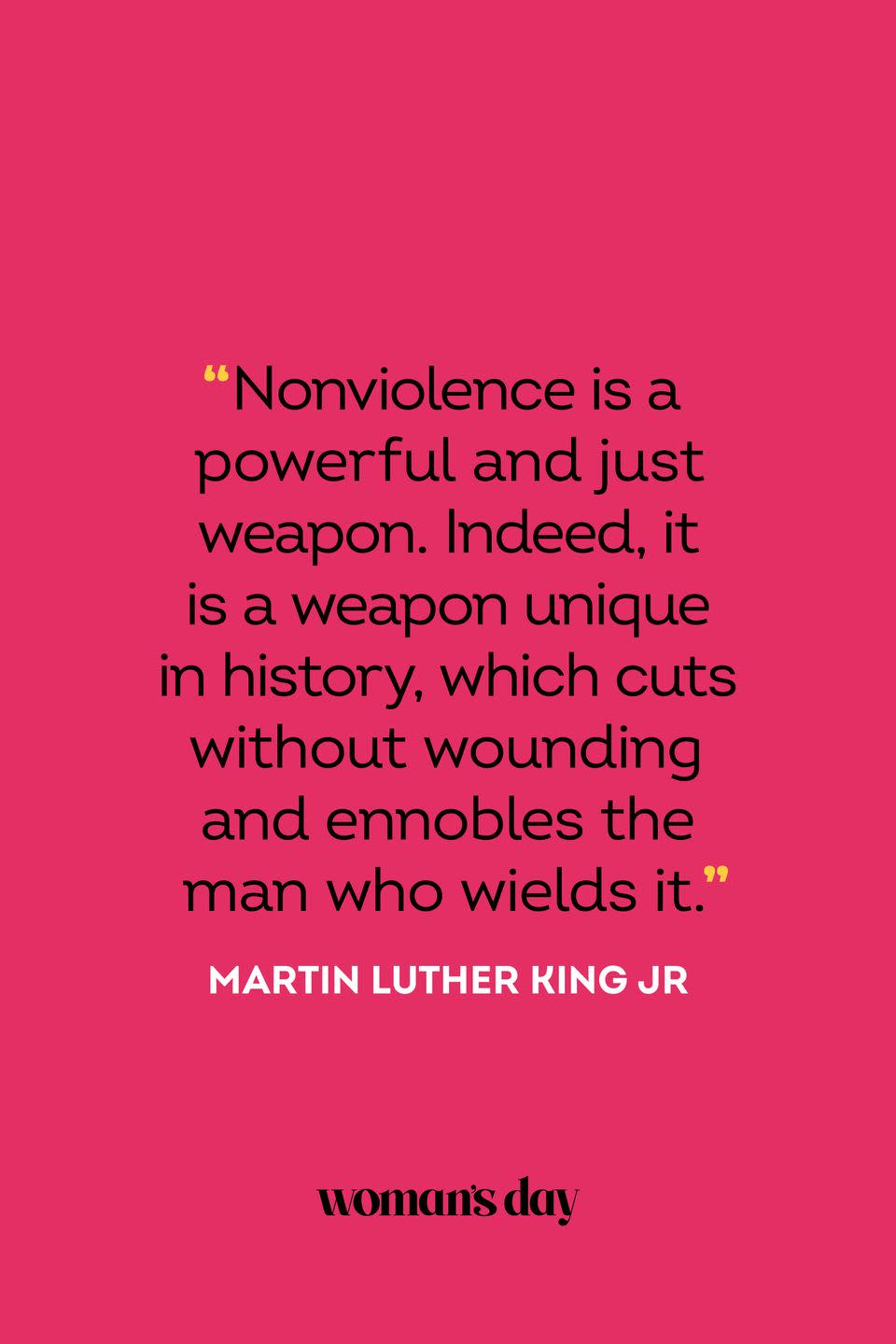
"A man dies when he refuses to stand up for that which is right. A man dies when he refuses to stand up for justice. A man dies when he refuses to take a stand for that which is true."
— Speech in Selma, AL, March 8, 1965
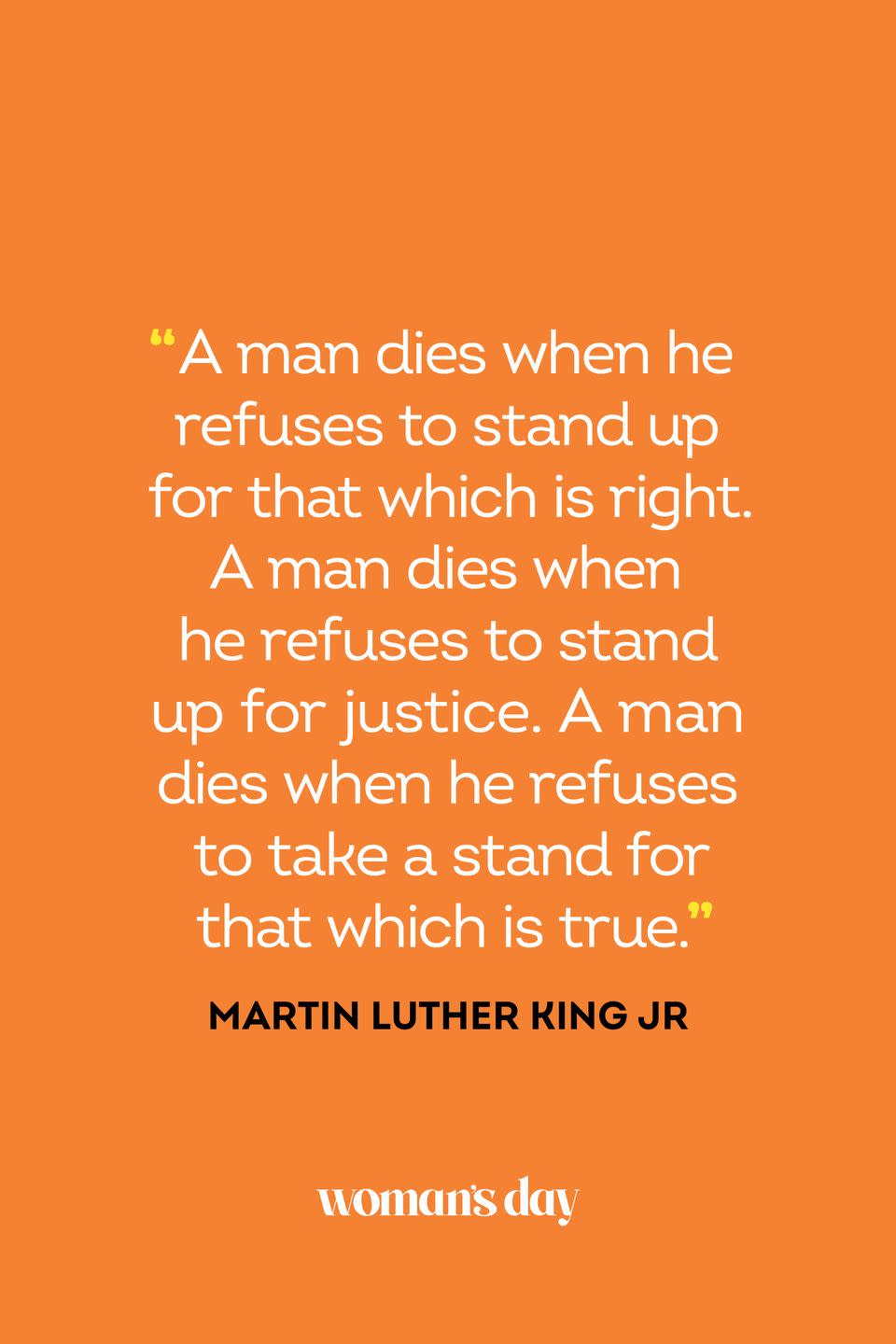
"No lie can live forever."
— "How Long, Not Long"speech in Montgomery, AL, March 25, 1965
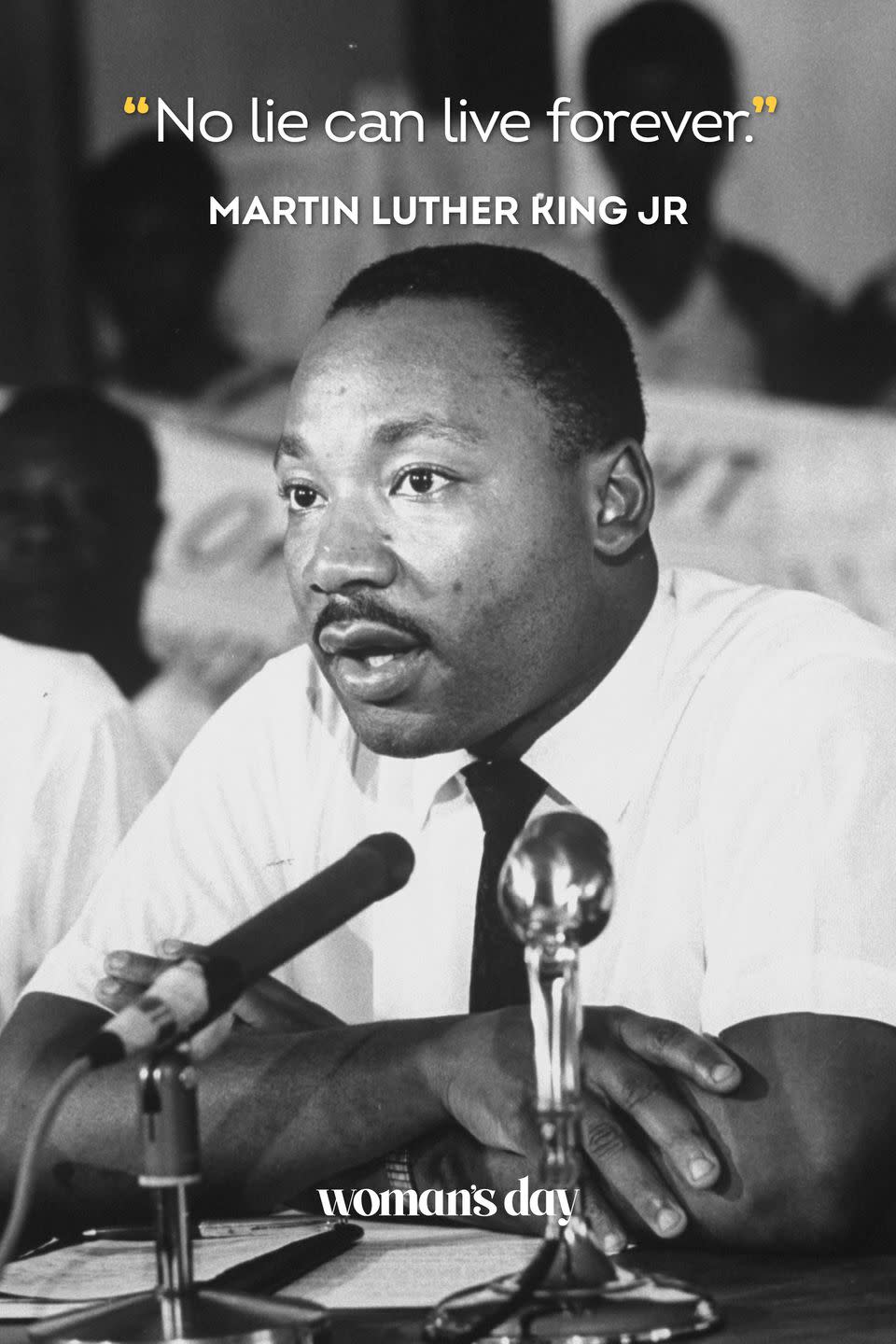
"I have also decided to stick with love, for I know that love is ultimately the only answer to mankind's problems."
— "Where Do We Go From Here?"sermon at the annual convention of the Southern Christian Leadership Conference in Atlanta, GA, August 16, 1967
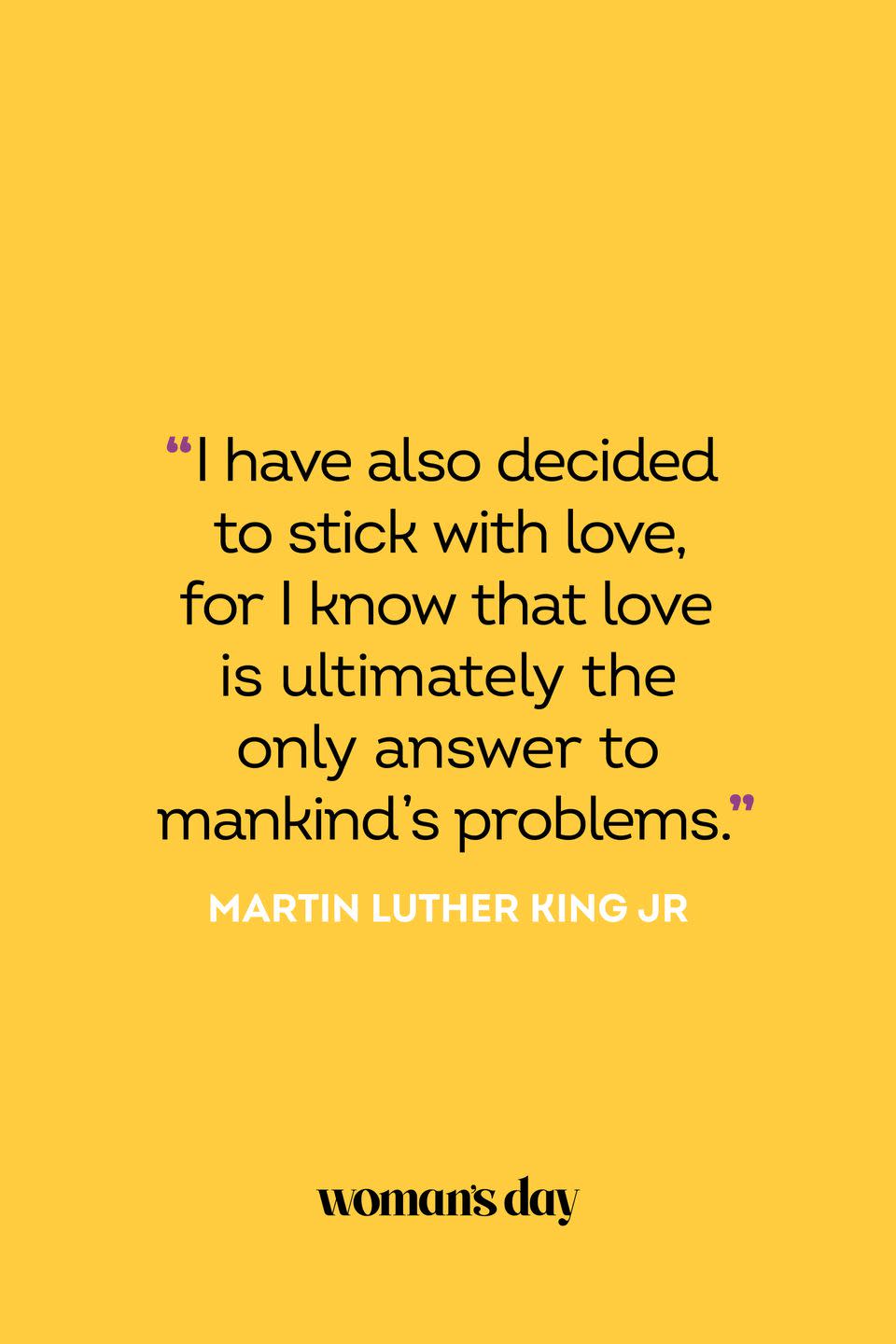
"Hate is too great a burden to bear. I have decided to love."
— "Where Do We Go From Here?"sermon, August 16, 1967
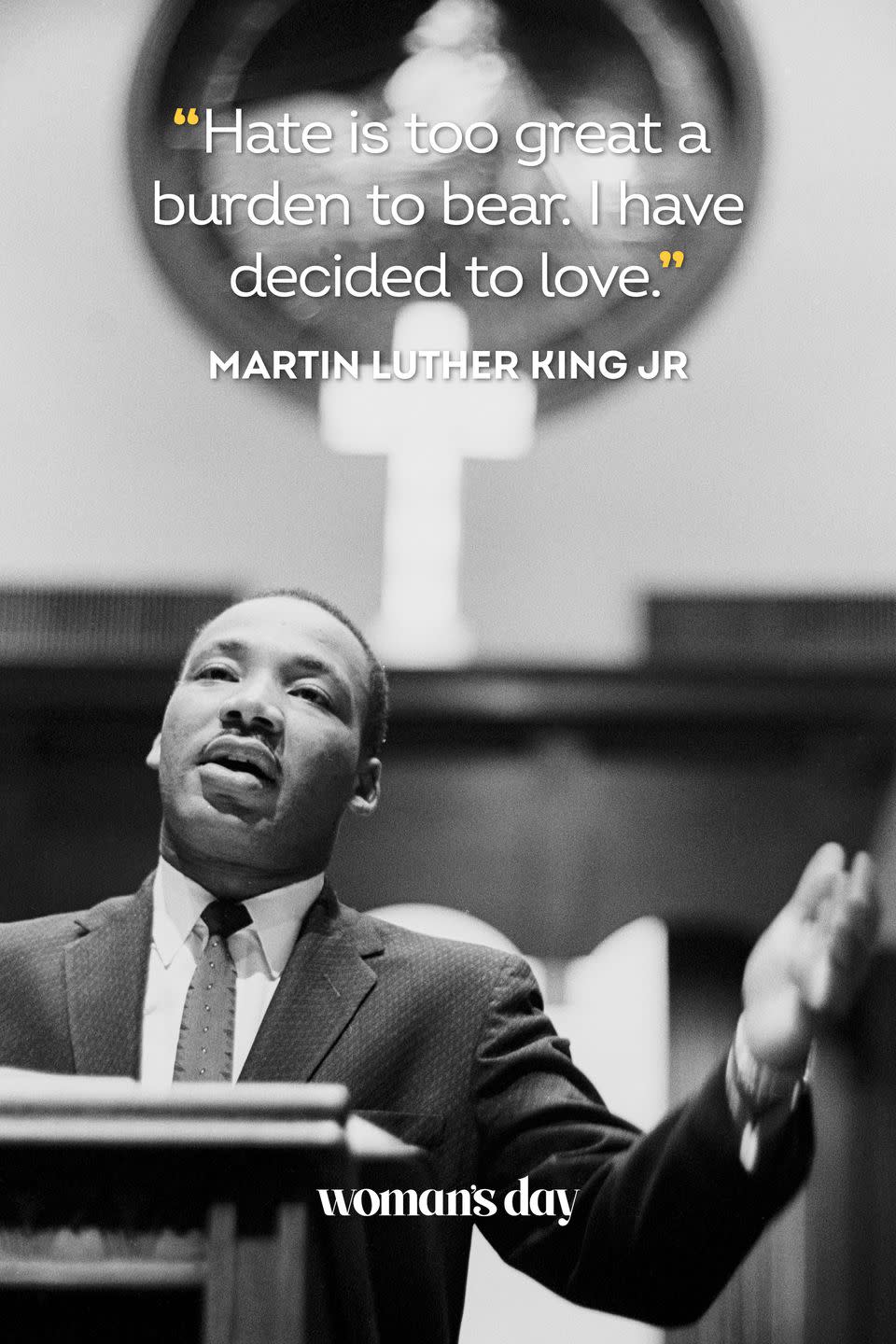
"We must walk on in the days ahead with an audacious faith in the future."
— "Where Do We Go From Here?"sermon, August 16, 1967
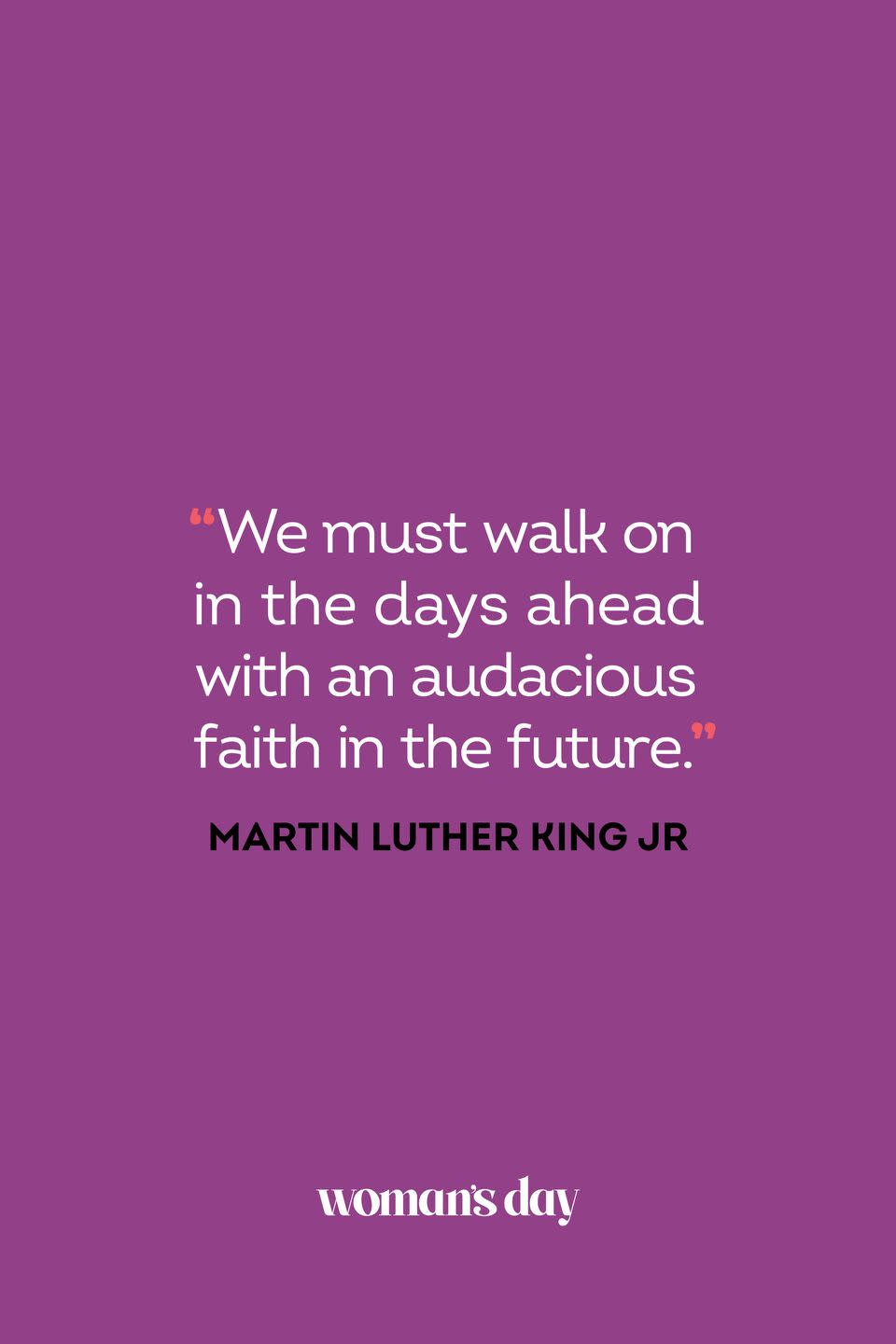
"Ultimately a genuine leader is not a searcher for consensus but a molder of consensus."
— "Domestic Impact of the War"speech, November 1967
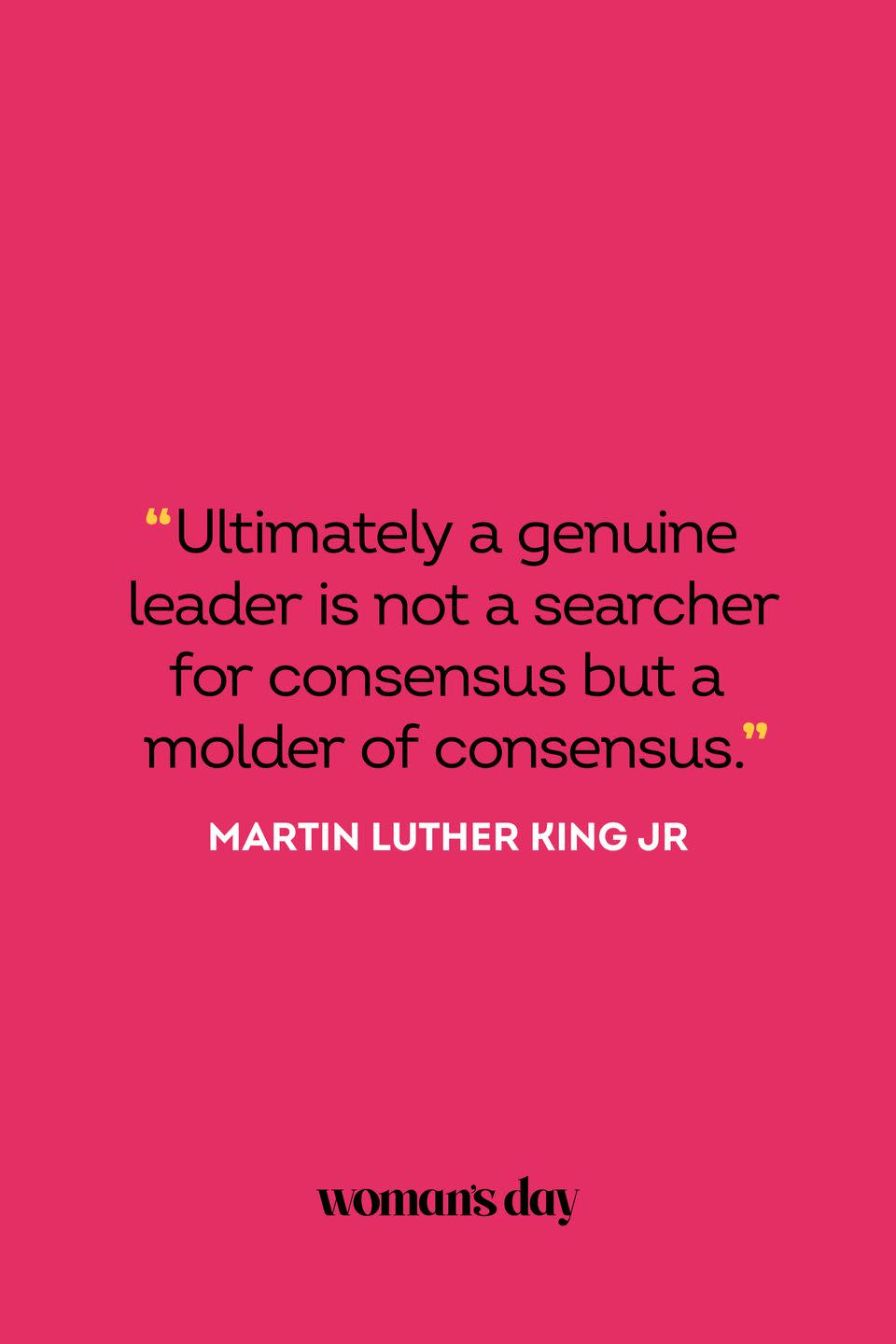
"In the end, we will remember not the words of our enemies, but the silence of our friends."
— The Trumpet of Conscience, Steeler Lecture, November 1967
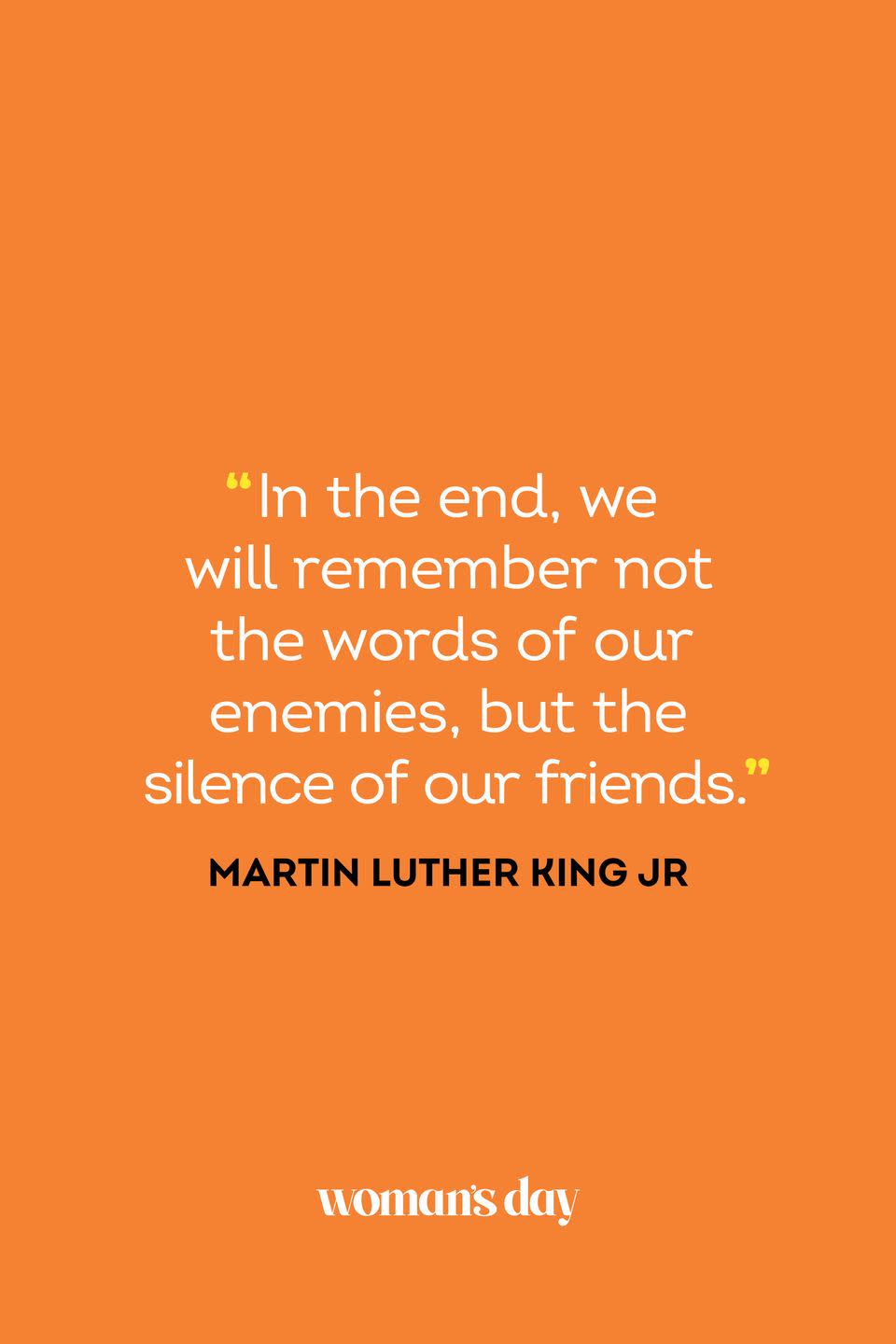
"We must accept finite disappointment, but never lose infinite hope."
— Washington, D.C. address, February 1968
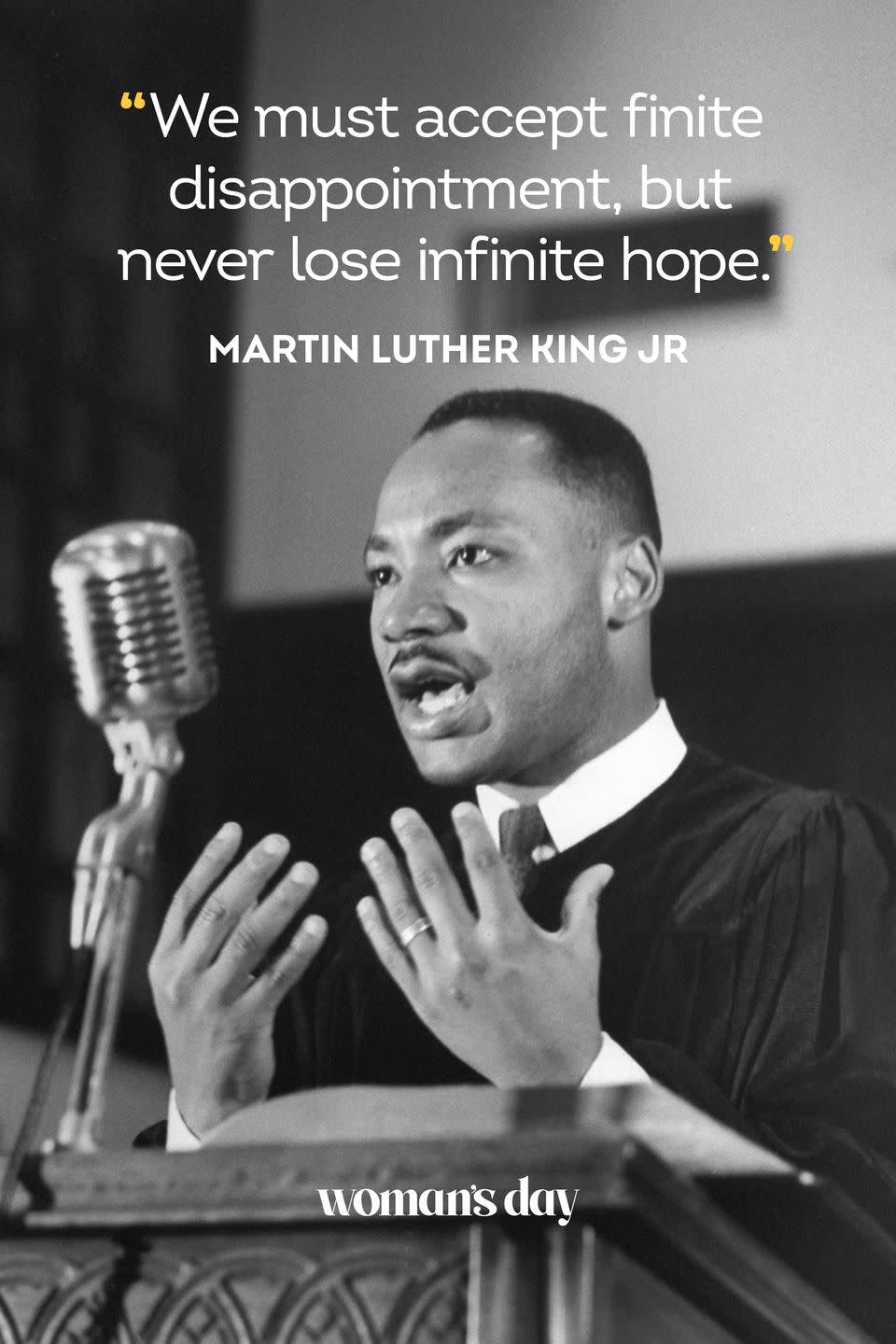
"There comes a time when one must take a position that is neither safe, nor politic, nor popular, but he must take it because conscience tells him it is right."
— "A Proper Sense of Priorities"speech in Washington, D.C., February 6, 1968
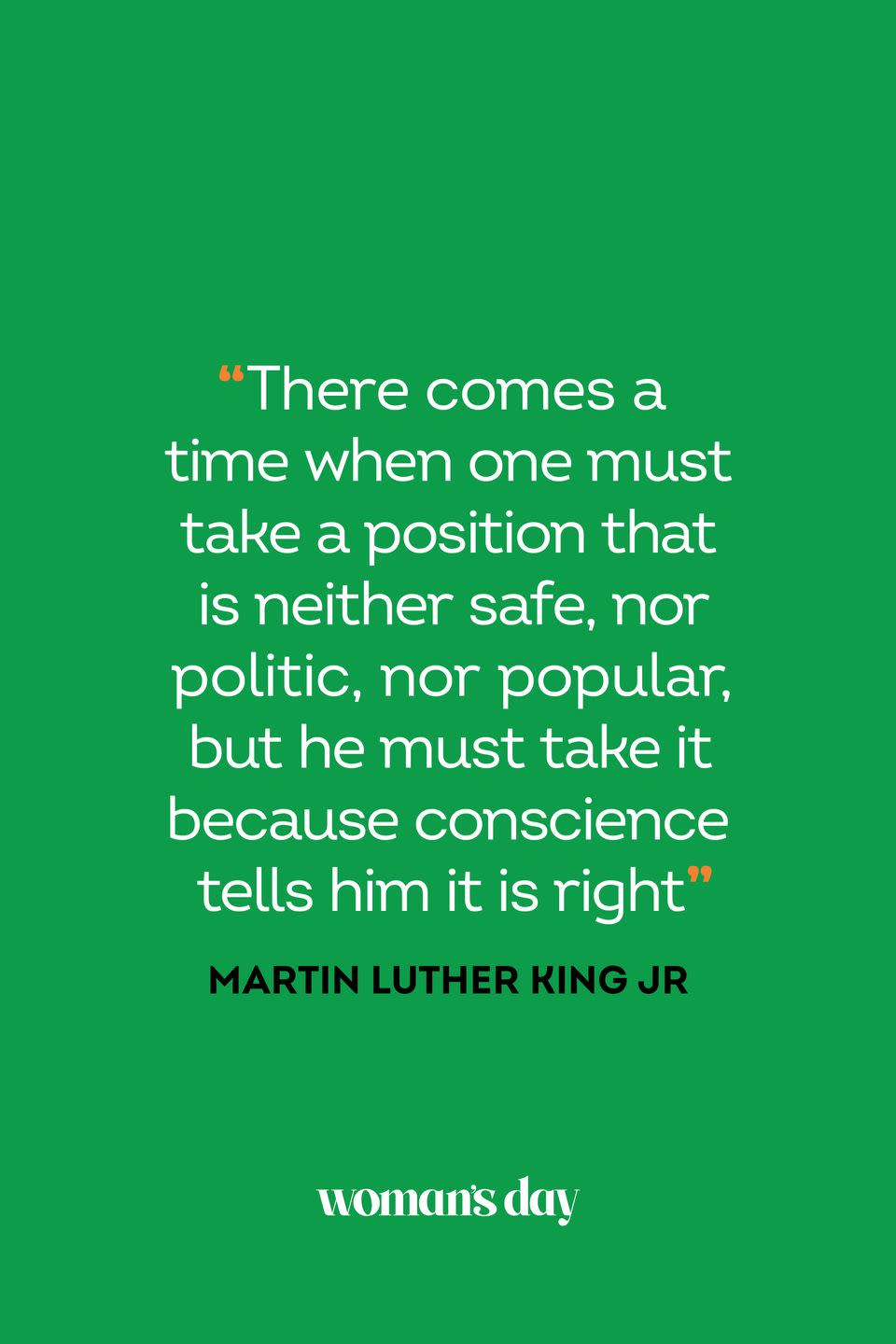
"When people get caught up with that which is right and they are willing to sacrifice for it, there is no stopping point short of victory."
— "I've Been to the Mountaintop"sermon at Mason Temple in Memphis, Tennessee, April 3, 1968
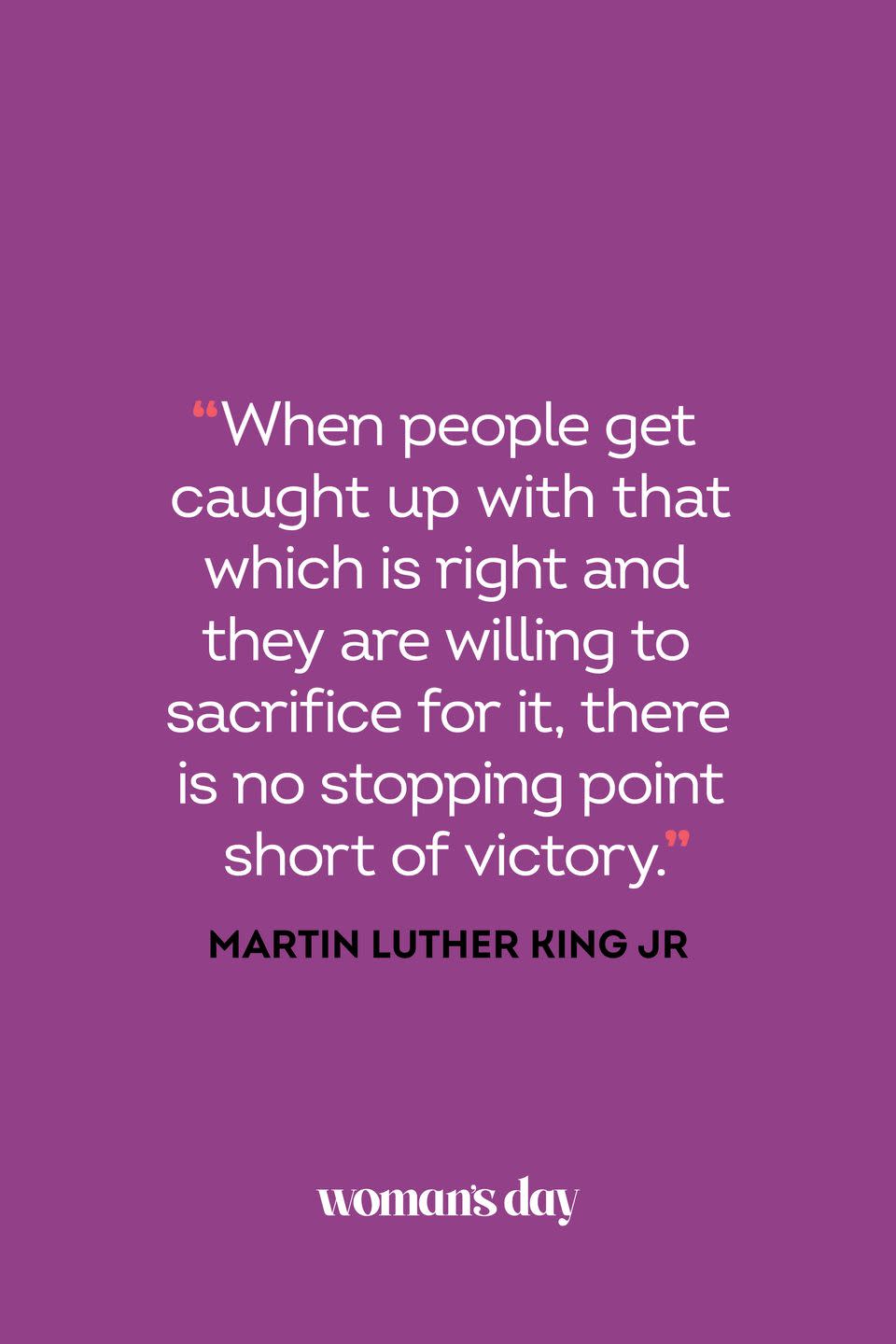
You Might Also Like


